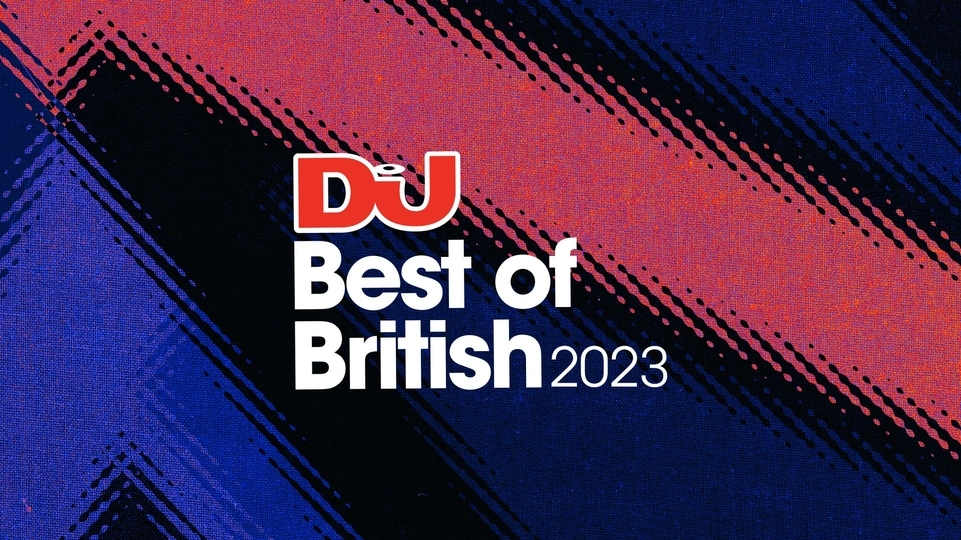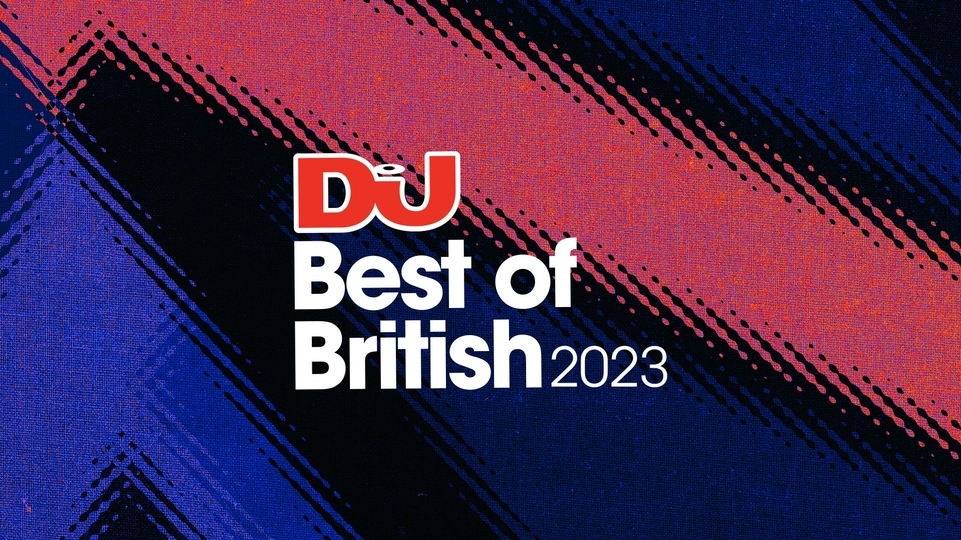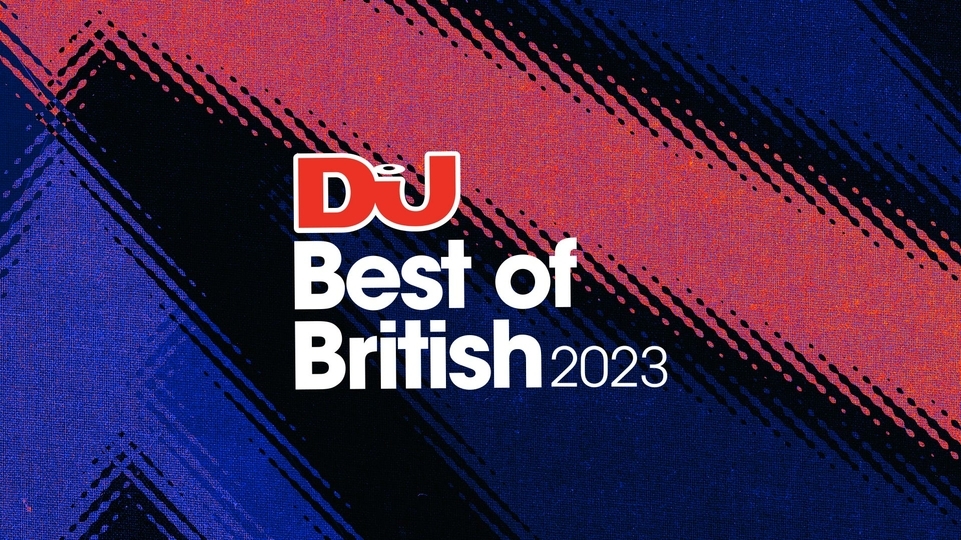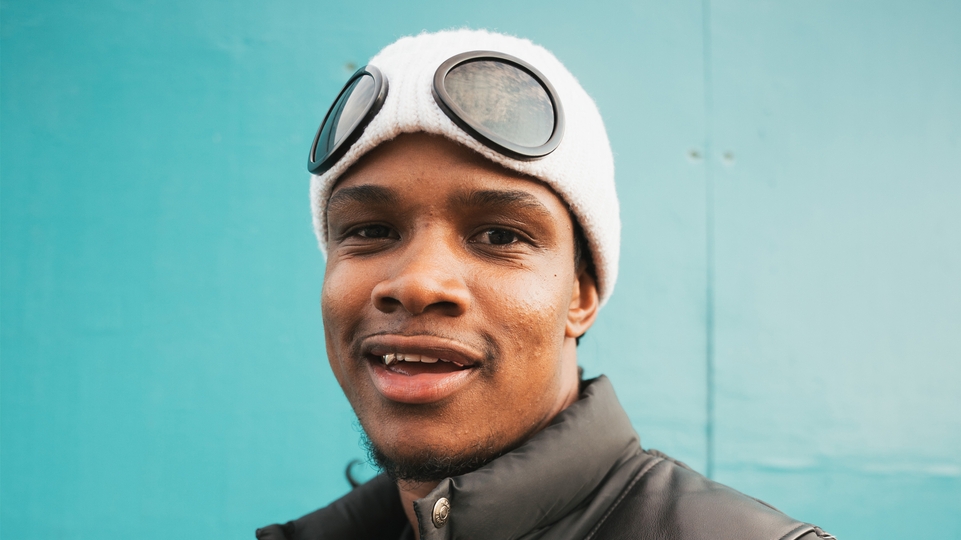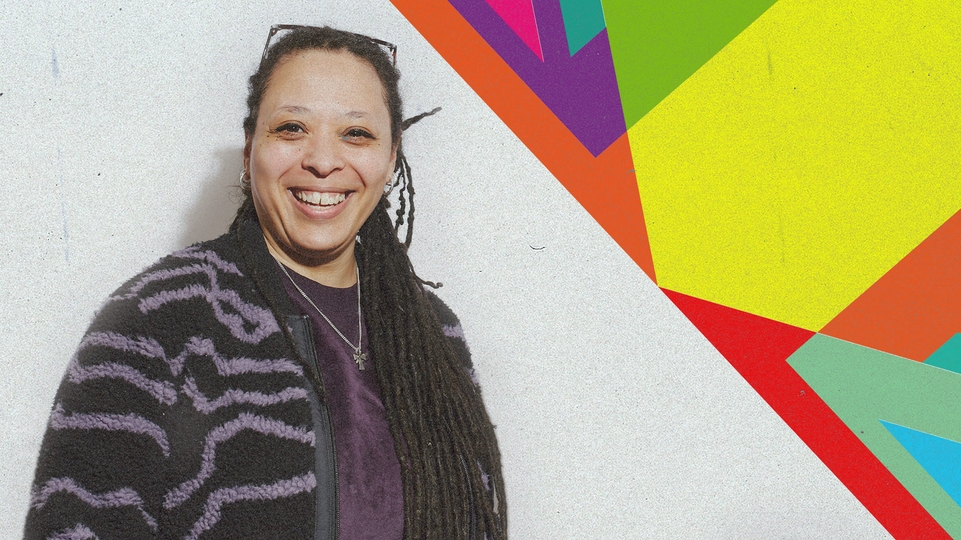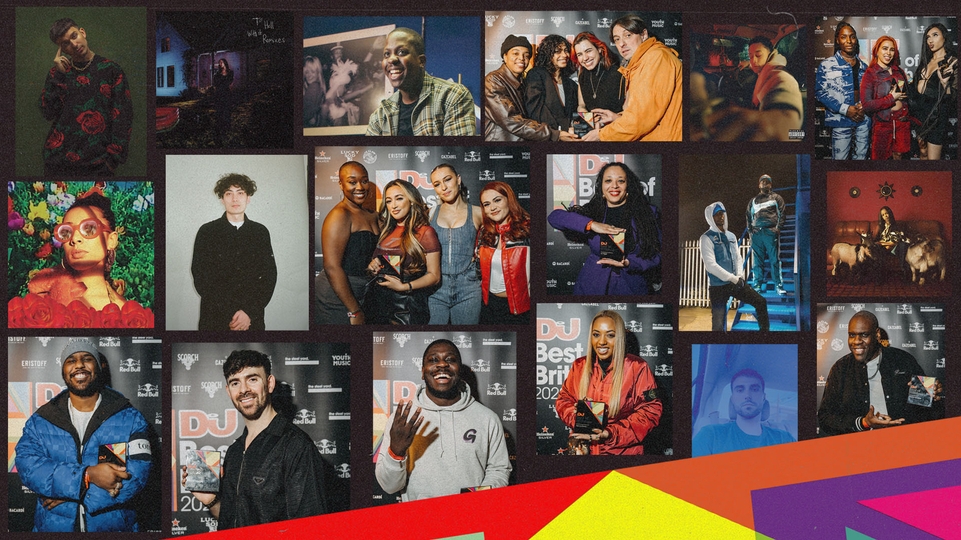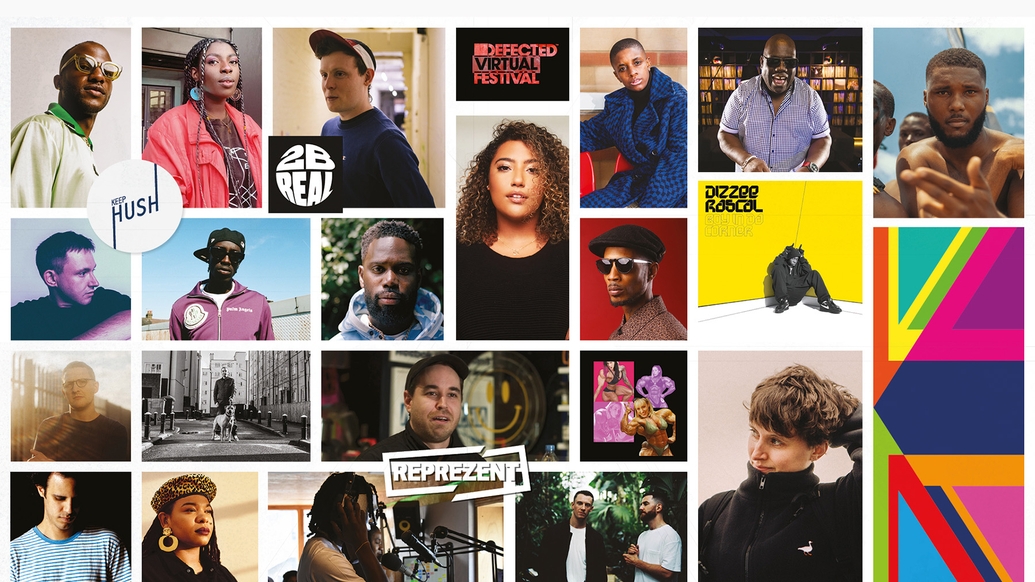
DJ Mag’s Best Of British Awards 2020: the winners
The votes have been counted and the results are in! Here are the winners in DJ Mag’s Best of British Awards 2020
DJ Mag’s annual Best Of British Awards celebrate all that’s great about the UK scene. Below, we’ve profiled all the winners of this year’s 23 categories, most of which are voted for by readers. We’ve switched up a few of the categories this year, factoring in the various restrictions that have been in place throughout 2020 due to the coronavirus pandemic. We’ve removed awards related to clubs and festivals while they remain shuttered due to the pandemic, and added in new awards such as Best Virtual Festival, Best Music Video and a few more relating to livestreams. As radio played such an important part in 2020’s musical landscape, we’ve also brought back the Best Radio Show award.
We’ve added some new awards to celebrate the strength of the UK rap scene, and introduced a new category picked by our editorial team — Game Changer — to honour a current figure in UK music who’s truly made an impact on the scene over the years. As ever, the staff-chosen Outstanding Contribution and Innovation & Excellence gongs are back, alongside the publicly voted categories.
These awards hope to shine a spotlight on this extraordinary year for UK electronic music, and look forward to a bright future full of groundbreaking sounds and a return to the dancefloor.
Congratulations to everyone nominated, and to this year’s winners, whose profiles you’ll find below.
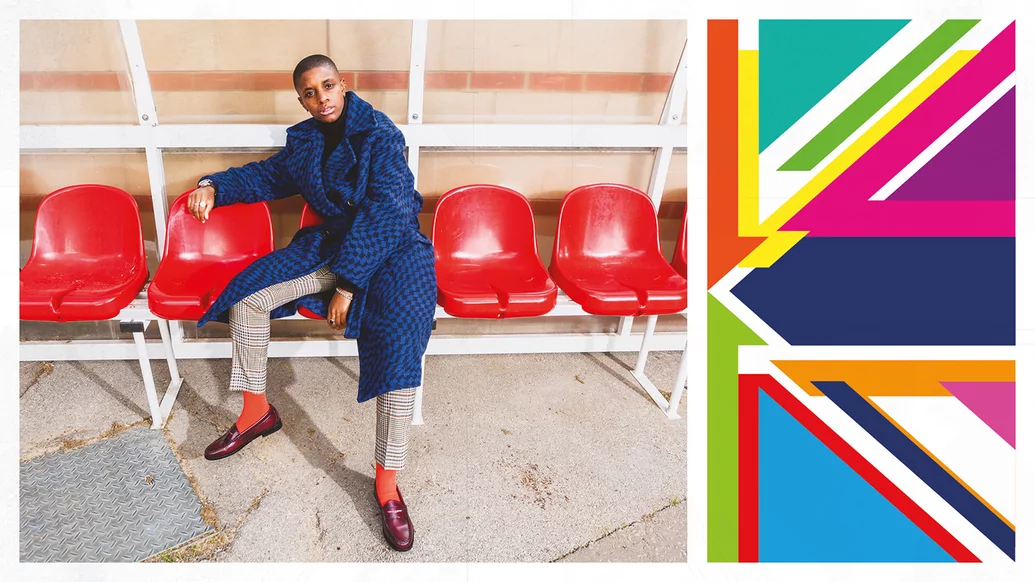

This month, SHERELLE stands powerfully on the front of DJ Mag, billed as the UK’s most electrifying DJ. Now, that very statement has been confirmed by DJ Mag readers!
Having scooped the Breakthrough DJ award in 2019 after a year of sold-out shows, viral videos and generally doing the DJing equivalent of smashing in 30-yard screamers with every touch, the North-East Londoner’s 2020 didn’t quite pan out the way she’d planned. But while the clubs have been closed, SHERELLE has still been putting in the graft to earn every single bit of this year’s Best DJ trophy.
Her residency on BBC Radio 1 has been an unmissable affair, pushing her captivating mix of footwork and jungle and showcasing DJs such as New York’s Kush Jones, Rupture co-founder Mantra and the legendary Luke Vibert. As with her days coming up at London station Reprezent, SHERELLE’s mission has always been to champion the music and artists she loves on the highest platform available to her.
She also delivered three year-defining mixes. First came her contribution to Dekmantel festival’s mix series; a ferocious 80 minutes recorded during the summer’s Black Lives Matter protests, which channelled all SHERELLE’s fury and sadness, garnering acclaim from fans old and new, though proving difficult to return to for the DJ herself due to the raw emotional outpouring. Next came her Pirate Radio mix for Chase & Status’ RTRN II JUNGLE project, an hour of rollicking ragga and clattering Amen breaks. And finally, the icing on the cake was November’s BBC Radio 1 Essential Mix, in which she distilled her hybrid sound via footwork classics, cutting-edge d&b and shared the first results of a year spent learning music production, via her slamming rave track ‘Jungle Tekno’. SHERELLE even managed to squeeze a few socially distanced gigs in, like going b2b with partner LCY in Brixton, and heading down to Bristol for an outdoor session at Lakota Gardens.
In her DJ Mag cover feature, SHERELLE explained that 2020 has also been a year of reflection. Determined to use her position to help those around her as much as she can, in October she went on BBC TV programme Newsnight and took the government to task over the lack of support for the creative industries during the coronavirus pandemic. Following the success of the Hooversound imprint she co-owns with friend and Beats 1 DJ NAINA — which blew up with four huge releases this year — she’s also decided to launch a new record label in 2021. Dubbed Beautiful Records, it will provide a platform for Black artists from across the electronic music spectrum, with a particular focus on highlighting Black womxn.
At just 27 years old, SHERELLE is still in the early stages of her career, but her relentless work ethic and ambition to take her music to new heights has already set her up for a lifetime as a British dance music icon. “It’s absolutely insane,” SHERELLE says of her Best DJ win. “Because obviously last year it was Breakthrough, and because this year has been so clapped. It’s a really nice way to end the year.” Ben Hindle
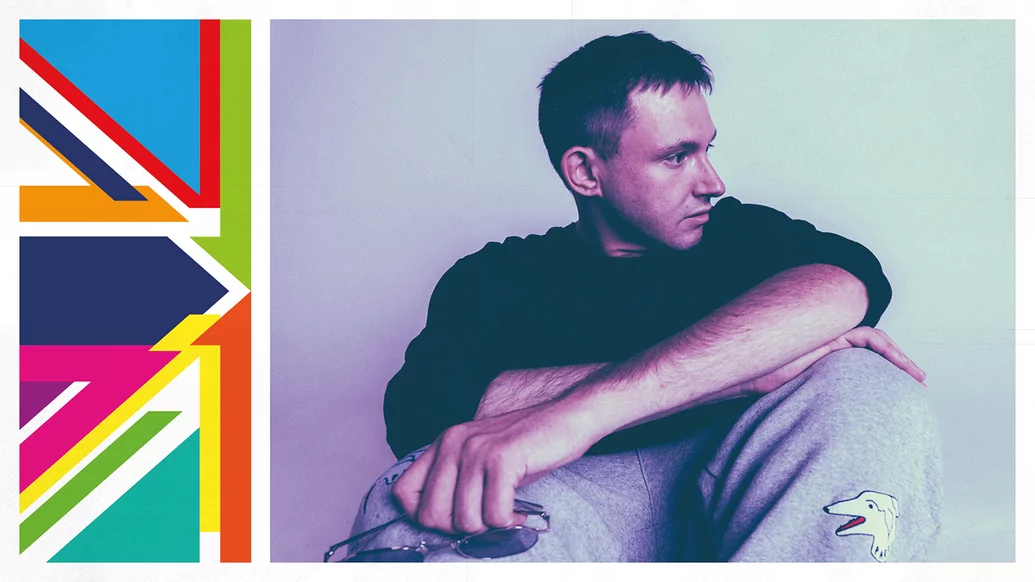

Los Angeles-based, Glaswegian DJ and producer Ross Birchard, better known by his stage name, Hudson Mohawke, says winning the award for Best Producer, especially in 2020, feels like “a weird, unintentional, delayed gratification”.
During the first waves of the COVID-19 pandemic across the US, Birchard didn’t do much producing in lockdown, and instead spent much of his free time recovering files from old hard-drives and archives.
He released a triptych of albums on Warp, brimming with a treasure trove of productions spanning almost two decades. From diehard HudMo fan favourites like ‘Monte Fisto’ and ‘100HM’, to records he’d made in his bedroom as a teen, the triple delivery had a sense of finality for Birchard: a charted evolution of his journey as a producer.
“You know, I was watching a lecture just the other day, with that old hardcore DJ, Billy Bunter,” he says, “and he was talking about his early days producing — he’d give his music away for free to labels because he was just so passionate about it. Now, after 15 years, he’s finally got the copyright to his catalogue back.
“It made me think about how those little things come back around. I didn’t release my music back when I made it because I just didn’t think it was good enough, you know? It’s weird to be excited about winning any awards this year, but it is gratifying because I feel like everything has come full circle — that doesn’t happen often.”
In more recent years, aside from his solo productions, Birchard has released records under numerous collaborative aliases, like his TNGHT project with LuckyMe affiliate Lunice, and has also landed production credits for hits by the likes of Anohni, Azealia Banks, A$AP Rocky, Ciara, and Kanye West. The most recent of these collaborative releases is ‘Hands In The Air’, a larger-than-life, technicolour rave anthem, produced alongside Brighton’s Dance System for a compilation featuring Big Miz, India Jordan, Lauren Flax and UNiiQU3. “It’s a funny one, because of the landscape at the moment,” he says, speaking about the record, which also landed alongside an animated, immersive video game-esque adventure.
“Me and James [Dance System] used to get booked to DJ on the same bills all the time, and it’s been good to rekindle that energy,” he continues. “It’s reflected in my whole pandemic approach: There’s no parties, there’s nothing going on, there’s no reason to be tied into genres. Both of us were just like, ‘Let’s make a record that sounds like our older stuff we like’, you know? Like Basement Jaxx or Phats & Small.”
Pairing that lust for old school rave sounds with limitless boundaries in regards to exploring them, Birchard launched another collaborative project this year, Love Minus Zero, alongside Canadian DJ and producer Tiga. The feel of the project is essentially sugar-coated club euphoria, and the most recent delivery from the duo, ‘Velvet Sky Of Dreams’, saw the producers dip into trance-leaning melodies.
For now, in terms of production, Birchard says his focus is mainly on the project alongside Tiga, although he admits he does have another solo record “pretty much ready to go”. “My thinking is that now a trajectory is in place, with the Warp albums this year, I can share new music,” he says. “Now that people can connect the dots and build the timeline... it’s like laying groundwork. I’m letting the Warp records sink in, and releasing them officially was so important to me. The gates are open, and I’m getting ready to release brand new music.”Amy Fielding
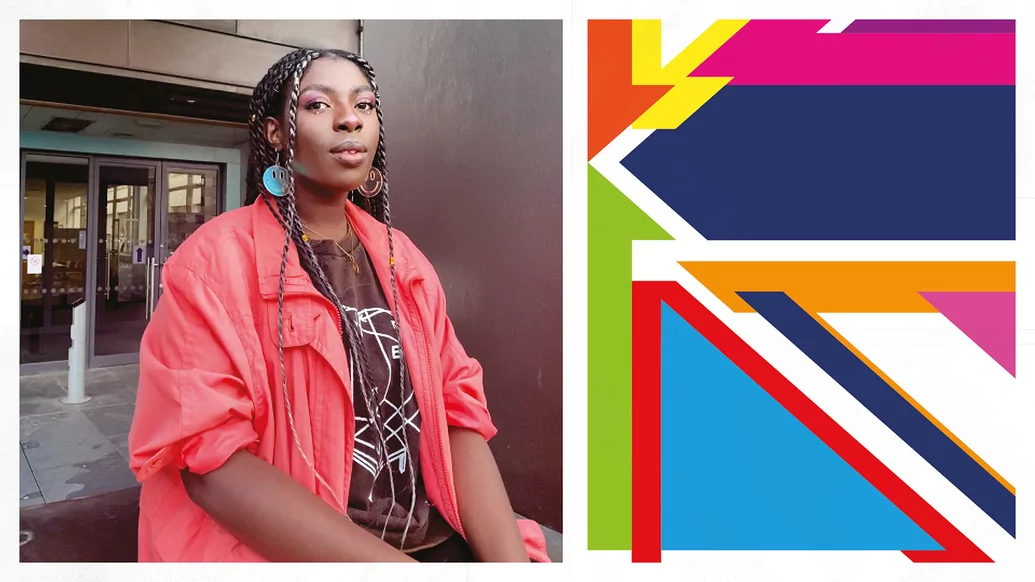

“I think it’s a strange year to win an award for DJing,’ says Anz. “It feels really, very surreal!”
She has a point. Winning a Breakthrough DJ award is bound to feel a little odd when the “physical environment that we associate with DJing feels more and more like a nice but distant memory”. “Also, I think I’ve always thought of myself as more of a producer than a DJ,” she says. “So it’s extra lovely to be recognised as such.”
Fact is, Manchester-based Anz’s skills behind the decks have shone against all odds in 2020, projecting a radiance and electricity that has been impossible to ignore. While the dancefloor has never felt further away, Anz’s mixes and radio broadcasts have transmitted that energy straight into our homes, triggering a tangible buzz across the digital landscape, with each new set feeling like an event to get excited about.
When we catch up with Anz, she’s putting finishing touches on her self-released ‘Spring/Summer Dubs 2020’ mixtape, a deluxe cassette bundle for her fifth annual productions mix, which she originally shared online in June. “I threw myself into working on music as soon as lockdowns started, and I didn’t stop,” she says. That frenetic productivity beams from the mix’s 35 original tracks, spanning everything from UK funky, UKG and electro to dubstep, hardcore, jungle and beyond, with her own distinctive flair burnt into every beat. Across its 84 minutes, Anz sets off tracks like fireworks, each erupting in dazzling sequence, mixed with excitement and precision. Like all of her dubs mixes, it snaps and swerves in unpredictable directions, with bright keys and vocal samples swirling around her razor-sharp drum-work. It feels like racing around an awesome Mario Kart track, hitting all the ramps and power-ups. The only difference is, every moment feels brand new, and nothing is repeated.
‘Spring/Summer Dubs’ wasn’t the only Anz mix to shake up the scene this year. Her landmark contribution to the lauded Discwoman series in April was an hour-long love letter to the rave, recorded at a time when global anxiety and uncertainty had us longing for a sense of release. Anz explained how the mix mirrored the mood she found herself in as the world came to grips with the reality of the pandemic: “Introspective and moody and caged in and anxious and full of energy, but then there are these sweeping moments of optimism for when we can all come together again.” Brimming with punchy rhythms and melodies from across the global dance music spectrum, the mix was cathartic, and found euphoria and joy when it was in short supply.
Optimism and friendship are things Anz has clung to this year, and watching those around her thrive has kept her motivated and inspired. “I’m super-proud of my friends, my peers and myself for grafting throughout this year, not knowing what’s next. Just creating and sharing and tiding ourselves over with music. It’s been a joy; one of the few 2020 had to offer.” Right before lockdown, she had channeled that sense of camaraderie into A Party Called: True with Jungle Joe, Finn, Tom Boogizm and Chunky, which we can only hope gets a second chance to prosper in the not too distant future.
Anz’s monthly slot on NTS Radio has continued to flourish, alongside some extra special shows on the station over the course of the year. So far, she has presented two volumes of A Letter To Eko, celebrating the vast and varied musical history of Nigeria, and signal boosting the country’s #endSARS movement in the process. The set she played for NTS’ Remote Utopias livestream event in May was “possibly my favourite mix I’ve ever made”. On 21st August, she turned her hand to the coveted early morning slot, filling in for Charlie Bones on the station’s The Do!! You!!! Breakfast Show. Celebrating the release of her ‘Loos in Twos (NRG)’ EP on Hessle Audio in September, she recorded a thrilling hour of wonky, bass-charged techno from the label’s catalogue.
On top of all that, Anz has somehow found time for “rediscovering my affinity for making and decorating cakes”. As she looks to the future, the energy and determination that made the strange year that was 2020 such a big one for her shows no sign of dwindling. “I’ve been working really hard on things behind the scenes, but for an overview: More music out! More self-releasing! More mixes! Maybe even some mixes IRL! More cakes and home-baked goods! Looking forward.” Eoin Murray
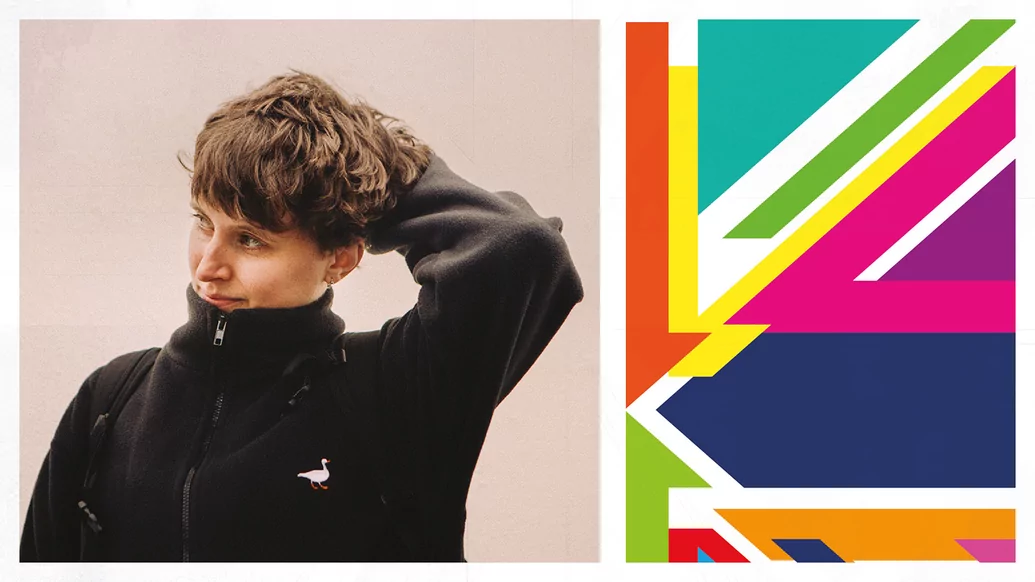

It’s good to keep a sense of perspective about the weirdness of 2020. As India Jordan wisely puts it, “Despite the world falling to absolute shit, the music side of this year has been very nice.” Coming from DJ Mag’s Best Of British Breakthrough Producer, that’s a very nice understatement. The Doncaster-born, East London-based producer not only released one of the standout dance records of the year and a run of sparkling remixes, they’ve also found acclaim far beyond the borders of clubland — and as the year closes, ‘For You’ is storming year-end lists across the board.
Released in May on London label Local Action, ‘For You’ pulls up in a gleaming chassis, ready to take you to the grubbiest basement in town. Boiling down the delirious pleasures of French filter house and Northern hard dance into a suite of ultra-emotional bangers, Jordan’s first vinyl release is basically the shot of dancefloor serotonin we spent all year pining for. Following last year’s ‘DNT STP MY LV’ EP, which announced a signature sound rooted in the producer’s early rave days — trance, happy hardcore, dirty bassline — these six tracks take on big questions of identity, belonging and acceptance, and dust them all with crystals of sugar and E.
As suggested by the sleeve art, a photo taken in the loos at beloved nightspot Dalston Superstore, ‘For You’ is an ode to self-discovery in queer spaces. Toilets are areas to hide away and decompress, Jordan explained at the time, but they’re also a refuge: “When I was growing up, it wasn’t necessarily safe for me to show any public displays of affection with people, so toilets were a safe option.” Between the Y2K disco-spin of ‘I’m Waiting (Just 4 U)’ and the strobe-lit sadness of ‘Emotional Melodical’, ‘For You’ becomes one of those rare dance records that tell a story about life beyond the ‘floor.
In different circumstances, ‘For You’ would have been the sound of the summer: six sun-baked festival anthems that never were. But although Jordan was in the middle of a UK tour when the pandemic hit, the nationwide lockdown became a chance for the producer — who still works a full-time job — to slow things down. “I was travelling every weekend and feeling a bit burnt out and exhausted,” they remember. When the EP came out, the celebration was a day of drinking in the park with friends. “It would have been a highlight if it wasn’t lockdown, but I would have celebrated in a different way — so I’m just appreciating the smaller things.”
Jordan’s hot streak of releases also included ‘Meri No More’, a hypnotic contribution to R&S charity compilation ‘In Order To Care’, and three peak-time remixes: a bassline refit of a Caribou slow- jam, a piano house makeover for Austra’s operatic art-pop, and a whirlwind of breaks and hoovers spun from Prospa’s synth- chug.
From any vantage point that looks productive, but lockdown has scuppered Jordan’s creativity. “I’m used to making all of my music in between places, while travelling on trains, so I had to really force myself to sit down and open up Ableton. Now I try to dedicate Sundays to production — but I’ve also taken up German and a load of cycling stuff, so I’ve given myself very little time to do music,” they laugh. “Sunday’s my day — I’ll take a microdose of truffles and spend all day on Ableton.” The fruits of these voyages will be revealed in spring, when the next EP arrives. As with ‘For You’, the new record “has a narrative behind it,” hints Jordan. What is guaranteed: more dancefloor anthems for an insatiable and ever-growing fanbase. 2021 could turn out very nice. Chal Ravens
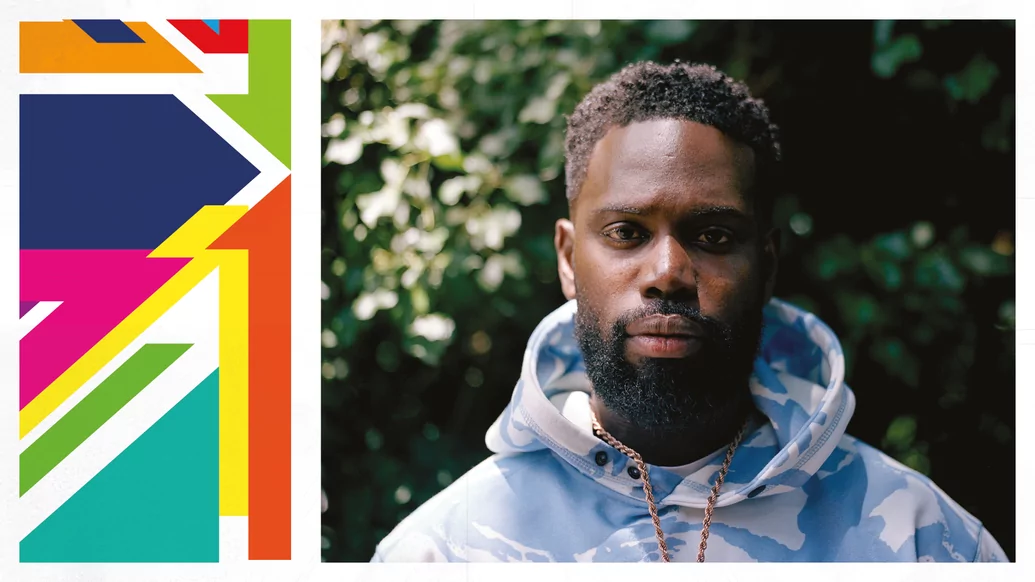

Ghetts was being generous when he released ‘Top 3 Selected’ in 2007 — a track about being one of the top three MCs in the scene — because for many, he’s always been their No.1. “It’s always a great feeling to be recognised,” the Plaistow native tells DJ Mag on finding out he won Best MC at the 2020 Best Of British Awards. “I didn’t really expect that. When they told me I was like, ‘Swear down?’ I was searching for what the award looked like and everything,” he laughs.
Some might say this award has been long overdue for someone of G-H’s pedigree. Stepping out with N.A.S.T.Y Crew in the early 2000s, Ghetts — then known as ‘Ghetto’ and whose real name is Justin Clarke — eventually went solo and released his debut project, ‘2000 & Life’, in 2005, bringing a hoods-up, straight-off-the-block energy to grime that made you believe every bar he spat in his fire-baptised flow. With a bunch of seminal projects behind him, including the much- loved mixtape-album ‘Ghetto Gospel’, Ghetts has mastered the art of MCing to scholarly levels. But, what makes a good MC a great one?
“A lot of people just focus on the barring, but it’s also about performance and being good on a record,” he says. “I’m a different artist on a record than I am on a set. When I go to a set, I can bring Ghetto out and enter that realm and mind-frame. But on a track, I could structure it completely different and then on-stage, we just let loose. It’s all about balance.”
In 2020, Ghetts released two tracks that quelled any doubt on his position as one of the UK’s greatest wordsmiths; ‘Mozambique’, featuring Jaykae and Moonchild Sanelly, and the Skepta-assisted ‘IC3’ have done for Ghetts what a whole album would’ve done for some of his peers. This is a shift that long- time supporters have been waiting for. “I feel like, at this point, it’s a combination of a few things,” says Ghetts on what’s brought about this new attention and praise.
“I feel like I have improved, but I also feel like we’re in a space where I’m being understood more for what I actually do. It’s a lot more clear now, and I’ve made some adjustments to how I present the music. Plus, I’m very intentional with the features that I do. I don’t just do any features, just because — I like to work with people who are sick, and whether they’re bigger than me or not, it doesn’t really matter.”
It’s also down to more grime and rap fans being in a space to appreciate true penmanship. “A lot of what I was saying before was going over people’s heads,” says Ghetts. “But now, with more lyricists about, it’s becoming clear what lyricism actually is. I’m more fearless now, and I’ll be honest: there have been years where I’ve been people’s favourite but I haven’t been as fearless as I should be because I’ve got stuck in the ‘This is what they like, this is what they want’ headspace. Even though I’d created that, it was actually stunting my growth because I got comfortable in what I was loved for.”
Following his 2014 album, ‘Rebel With A Cause’, Ghetts is gearing up to release his new LP in 2021 — and it may well be his best drop yet. “I’m trying to make the art so pure,” he explains. “I always want my music to impact as many people as possible, but if it means losing some of its authenticity and the risk in the music, then I’m not for it. I handed in the album literally a couple days ago, and the feedback from the people I’ve sent it to has been very sick.” We wouldn’t expect anything less. Joseph 'JP' Patterson
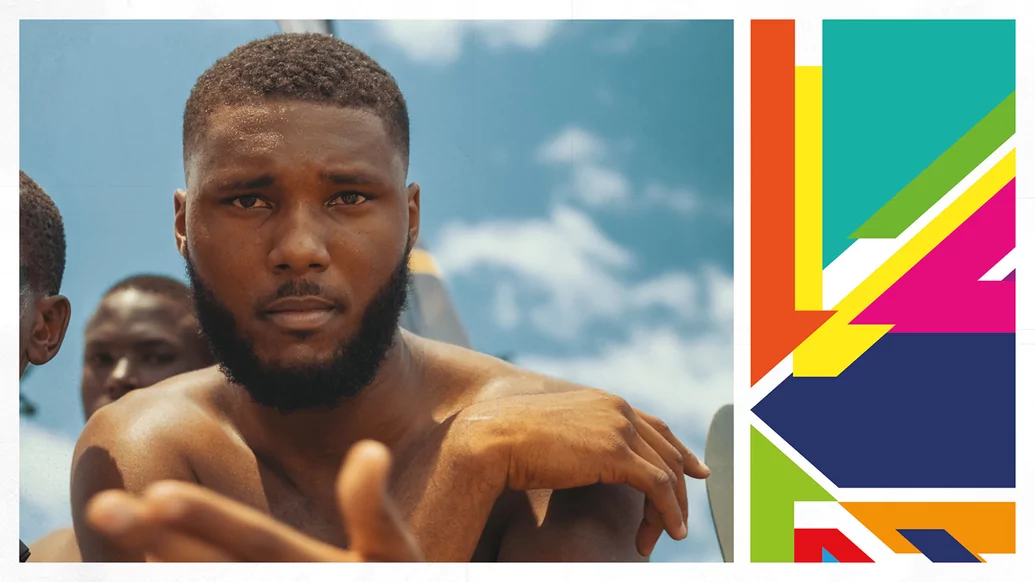

To the surprise of very few, Birmingham rapper M1llionz has been named our Best Of British Breakthrough MC of 2020. The award is, of course, a celebration of those who’ve had a meteoric rise to the upper levels of their respective scenes — but few have enjoyed a rise quite as steep as M1llionz.
At the top of 2020 he made an auspicious appearance on Kenny Allstar’s Voice Of The Streets freestyle series, which Kenny kicked off with the words, “You’re about to see an artist that’s going to have a sick 2020. That’s not a prediction, that’s a spoiler.” You’d have been forgiven for dismissing that as the usual hypeman bluster, but you’d be laughably wrong. That was late January. A few weeks later and he joined Teeway, Meekz and fellow Midlander Pa Salieu for ‘Year Of The Real’, a staggeringly prescient team-up between four MCs who... well, you know the rest.
However, to trace his rise to the source, you have to go back to 2019 when he released ‘North-West’, a day-in-the-life diary entry that punctured the usual darkness of drill with a flow unlike any other and a dry wit that sometimes gets left by the wayside. Birmingham, of course, has a long and storied musical history but many point to ‘North-West’ as the moment the UK’s second city entered the UK drill scene. Far removed from the sound’s South London roots in the UK, here was a rapper wearing his broad Brummie accent as a badge of honour, and reshaping the usually percussive drill template to fit his distinctly fluid delivery — a style heavily influenced by his Jamaican upbringing and an early exposure to dancehall greats like Elephant Man and Bounty Killa courtesy of his mother.
But it was in the summer of 2020, with the release of ‘B1llionz’, that his takeover really gathered speed. An idiosyncratic showcase of his tumbling, run-over delivery, it broke just about every songwriting rule and did so proudly. Gifted a garage-tinged production from Bkay (another man of the moment), ‘B1llionz’ kicked the doors of the scene open for M1llionz and made good on Kenny Allstar’s promise.
A string of critically-praised singles quickly followed, but two in particular stood out: ‘Y Pree’ and ‘Lagga’. The former leaned into his Jamaican heritage harder than ever before with a marked dancehall influence in producer Hargo’s instrumental and a focus on patois in his lyrics; he even flew out to the Caribbean island for the track’s video. Then, in September, he took another sharp left- turn with ‘Lagga’. If you haven’t experienced ‘Lagga’ — and it really is an experience — it’s a riotous nailbomb of a track with a huge, anthemic hook (literally just the title, repeated) and a bassline to rattle your chest cavity thanks to RicoRunDat, TSB and iO. The video, however, is where the true madness lies. Filmed in Nairobi by increasingly ubiquitous director Teeeezy C, we’re greeted with scenes of a shirtless M1llionz surrounded by a small army of machete-wielding fans gleefully chanting lines like “Can’t put faith in this rebore jammer / I got more trust in this kitchen stabber”. It really has to be seen to be believed.
Each of the street hits he’s dropped this year — including guest spots and most of his tracks from previous years — have cruised straight past the seven-figure stream barrier and he now joins the ranks of drill artists so unique they’ve transcended outsider status to become the subgenre’s leaders. In fact, it’s precisely because of MCs like M1llionz that drill has gone from an underground subgenre maligned with accusations of monotony to cultural force majeure and UK music’s untamed frontier of creativity. Now that he and his ilk have irrefutably proven drill’s potential for experimentation, his debut album can’t come a moment too soon. James Keith
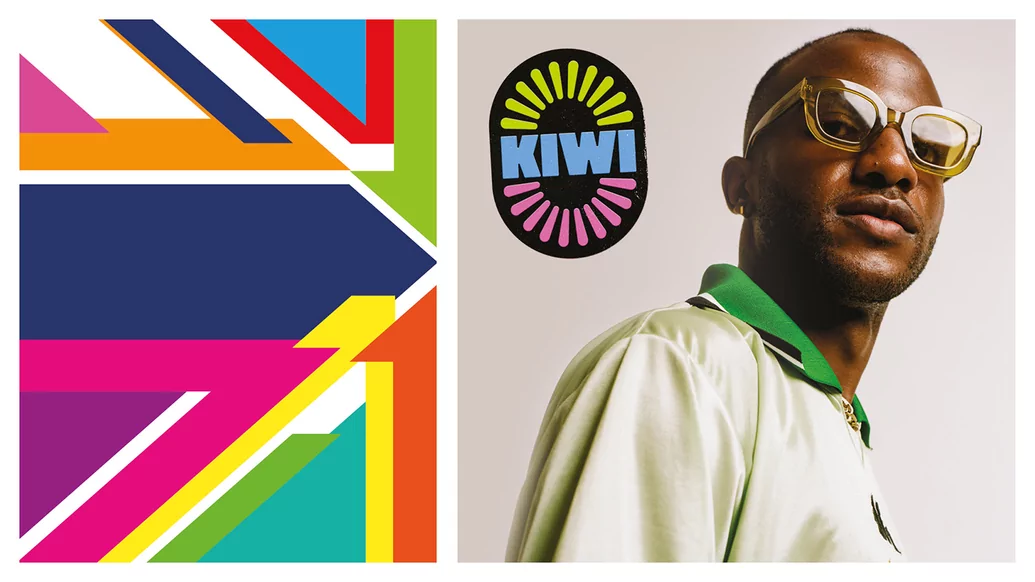

Conducta had a very different 12 months in mind when picking up Breakthrough Label for Kiwi Rekords at 2019’s Best Of British Awards. A new wave was cresting within UK garage, and he was best positioned to ride it. Then came the dissolution. Now, with almost all physical spaces shut and joyless take-vultures circling above digital platforms, the environment is less than inviting for any label with ambitions to kick on and reshape the scene around them.
“It would have been very easy for me to get lost in myself,” Conducta reflects on the year gone by. Instead, he went the other way, doubling down on a commitment to share his experiences and open the door for others wherever possible: “Through lockdown I developed a better understanding of what Kiwi is for. I realised I wanted to stick to my integrity. I had to follow through on my word.”
After scrapping tours and parting ways with one of its key names in late spring, team Kiwi regrouped. Conducta ran numerous live-streams from his London yard, making sure fresh UKG continued to circulate. He took it upon himself to mentor budding producers and dole out what knowledge he could provide to those who asked. The Kiwi Kup ran for a second year, drawing in what Conducta estimates as several hundred applicants from across garage and bassline. The eventual winner, Gemi, bagged a record deal with Kiwi, making up one of half-a- dozen 12”s and EPs that the label put out across the Autumn — including ‘Time’, Conducta’s first single since the star- making smash that was ‘Ladbroke Grove’.
In a way, a label doing label things shouldn’t be a surprise. But the structural issues within UK garage resulted in talent being left unsupported for years, as existing DJs protected their gains in a shrinking pool of opportunities. Conducta spoke candidly with Joseph ‘JP’ Patterson in DJ Mag’s September cover story about battling low self-esteem and depressive tendencies as he failed to make an impact at the beginning of his career. This is what keeps a spark lit underneath him today, helping push through unprecedented challenges and fuelling the Kiwi movement at large.
Kiwi has only existed since late 2018, but the way audiences responded to the label’s energy “showed we had something on offer that people genuinely wanted to be a part of,” Conducta reasons. They didn’t just moan about the problems, but got to work on a solution. “We’ve built quickly, established strong foundations and already got to a point that we didn’t necessarily need verification or acceptance from other people,” he continues. “Now we’ve got our community, we back each other and do our thing. It’s a home for all.” Some of the most established UKG veterans around have even started their own labels to uplift young talent. Would this have happened without Kiwi? It’s impossible to be sure, but it’s not hard to guess.
If 2019 was the breakthrough, 2020 was the year where Kiwi truly stuck a flag in the ground. The bright ‘n bubbly sound of the label still rankles some purists, evident through pockets of oldhead resistance. But those who mistook Conducta as scheming a hostile takeover of UKG for himself have no choice but to recognise the honesty and integrity underpinning his movements.
A new generation of garage stars are empowered, surging with creativity and ready for the moment when clubs come back. The ripple effects are clear for all to see — which is why Kiwi Rekords have deservedly been voted DJ Mag’s Best Of British Best Label for 2020.
While they say you can’t win anything with kids, in just two years Conducta and Kiwi have already bagged an armful of trophies. Time to start thinking about an extension to the cabinet. Gabriel Szatan
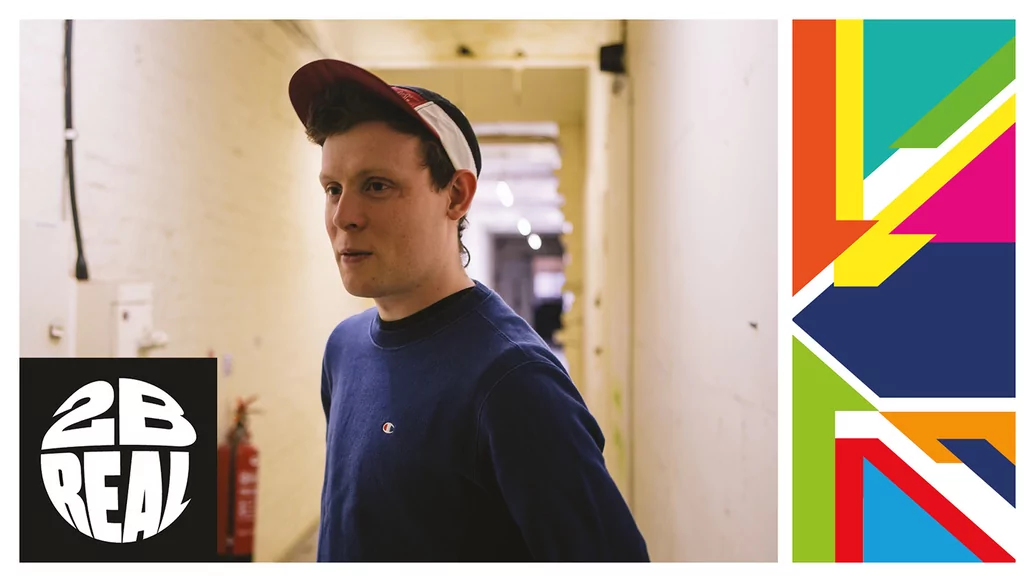

Since launching in 2017 as a sister label to Local Action, Finn’s 2 B REAL has been a home for heartfelt club music full of punchy grooves and personality. In 2019, the Manchester imprint teased its true potential, releasing one of DJ Mag’s favourite EPs of the year in Anz’s game-changing ‘Invitation 2 Dance’, as well as the wonky dancefloor odyssey that was ‘An Introduction To Michael J. Blood’, mixed by Tom Boogizm.
It was in 2020 that the label fully came into its own, stepping up to the plate as a genuinely exciting platform for off-kilter sounds, boasting four wildly different EPs and a remix collection to boot. In a year without dancefloors and communal experiences, 2 B REAL stayed loyal to the joys of rhythm and movement while simultaneously highlighting the unique artistry and character behind each release.
“I’m dead proud of all the records we did this year, I’m just buzzing that they resonated with people,” says Finn, a DJ and producer with a deep affection for emotional rave music, soulful house and radiant UKG, whose own mixes, white label series and collaborative EP with Shanique Marie on Local Action have been endorphin- boosting tonics to the gloom of 2020. Since being encouraged to launch the label by Local Action’s Tom Lea, the NTS resident has curated a space to spotlight the emerging artists he admires. With a pure and simple desire to release Great Dance Records, 2 B REAL’s steadily growing catalogue of music shines thanks to its assorted identities and flair. It’s really no wonder it was voted Breakthrough Label at this year’s Best Of British Awards.
The imprint kicked off the year with London producer Gage’s ‘E Anthem’, a four-tracker that juggled rave euphoria with murky techno minimalism and beatless synth play. Described as an EP “for the freaky kids n’ anybody who feels like they haven’t got anything”, it ran at 2020 with a simple resolution: “We gotta create our own positivity”. Little did we know how prophetic that message would prove to be.
In April, Mutualism party/label member Clemency released her debut EP, ‘References’, on 2 B REAL; a stunning and subtle triptych of experimental drum play with nods to dubstep and musique concrète, but which exists in a universe entirely of its own. Sharing a literal list of “references” for the record alongside its release — including everything from music, literature and film to places and cosmetics — Clemency created something curious and personal with this EP, which 2 B REAL gladly facilitated. “Beth [Clemency] had a really brilliant framework for that record,” says Finn, “and I think we did a good job of presenting that — especially the way Jamie Sendspaace built on the concept for the artwork, and then the roll-out with Beth’s own references for the record. A personal highlight for sure.” In December, a remix EP for ‘References’ was released, with Perko, Boofy and Jennifer Walton offering new, electrified takes on its three tracks.
In July, Montréal’s Martyn Bootyspoon released ‘Lickety Split’ on 2 B REAL, an EP that DJ Mag recently described as “one of the most memorable club releases of 2020”. The five-tracker was pure rocket-fuel, fusing psychedelic ghettotech and sizzling electro with bubbling house and hyperactive grime. It made for the perfect pairing with a label with zero interest in boring genre parameters. It was shortly followed by the sunset Balearic double-bill of Boo Tell’s ‘Alone’/’Come Away’, which bracketed off a strange summer that, despite everything, still needed a soundtrack.
Looking ahead, 2 B REAL is just going to keep doing what it does best — that’s releasing Great Dance Records, remember — and we can’t wait to hear what it’s got up its heart-wearing sleeve in the new year. As for Finn? “I’m just gonna go clubbing if that’s okay!!” Eoin Murray
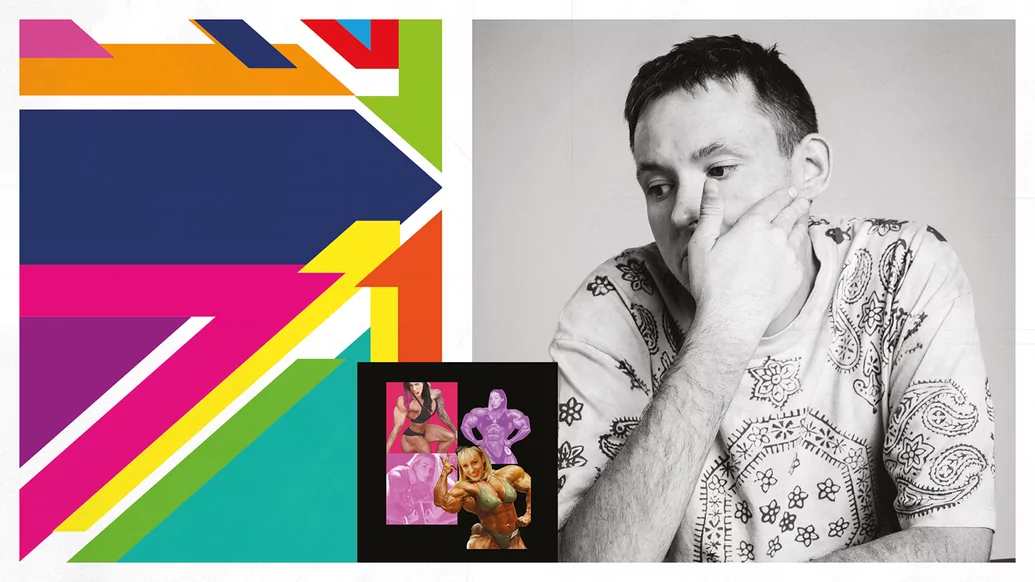

It’s not often that an artist manages to take their fans by complete surprise, but it’s something that Hudson Mohawke, real name Ross Birchard, managed to do this year in a spectacular yet low-key fashion.
For years, fans of Birchard’s music had been forced to share low-res mp3 files of his productions, while the elusive producer sat on terabytes of archived music and broken hard-drives. When the first album in a triptych for Warp Records, ‘B.B.H.E.’, dropped at midnight on 2nd August with no warning, the Glasgwegian’s fan-base exploded. “For some reason, I just knew this was the time to do it,” Birchard says. “Someone else said to me that for most people, releasing a big project like that this year would have been suicide — but I’ve somehow got away with it.” A largely private and elusive individual in contrast to his loud, garish music, he admits that he didn’t release most of the material before now due to doubting his own abilities.
Releasing the series via Warp is symbolic for Birchard, too. Founded in 1989 by Steve Beckett and the late Rob Mitchell, the producer was familiar with various artists on Warp — Aphex Twin, Nightmares On Wax, Boards Of Canada — and after meeting Beckett at the RBMA in Toronto, signed to the label. In 2009, Birchard released his debut album ‘Butter’ via the imprint, and his final LP until this year, ‘Lantern’, in 2015.
In DJ Mag’s cover feature with the artist in the summer of 2020, Birchard spoke about how, during lockdown, he’d found time to collate his old, lesser-known productions, alongside a mass of cult HudMo favourites, into the series for Warp Records. “It was in my subconscious that super-fans of mine knew all these songs, but other, newer people listening to my music might not,” he explains.
“I think if I had just gone ‘Here’s a new album!’ people might have been like ‘Where the fuck has this come from?’, and not understood the lineage of it.” The cohesive timeline is so important to Birchard, and it’s one of the things that makes ‘B.B.H.E’ so impressive. It’s a nod to his personality and sense of humour — the letters stand for Big Booty Hiking Expedition — but it’s also a sonic scrapbook, documenting everything he’s ever loved about production: trance, happy hardcore, hip-hop, and most of all, sheer club-induced euphoria.
The album opens on ‘Brooklyn’, a glittering, effervescent trap-sounding beat that’s been doing the rounds on YouTube for five years, and moves swiftly into glitch heaven with ‘Mandarina’. ‘Tar’, the oldest track in the three-LP series, is a timeless sounding gem, and both ‘100HM’ and ‘Monte Fisto’, which featured on Grand Theft Auto V and an Adidas advert respectively, made the tracklist. It’s the latter tracks which overjoyed his old fans, but if you told a newer listener that some of the music on the album is over 15 years old, they might find it hard to believe.
If there’s a golden thread through all of Birchard’s work, it’s the tongue-in-cheek, playful energy which appears even in his darkest tracks. “I’ve always tried to incorporate a sense of joy into what I do,” he says. “I think that, for one reason or another, a lot of people think that’s not a ‘cool’ thing to do in underground music, or something? Music like happy hardcore is very direct and pure, an expression of joy. Who the fuck is anyone to say that something that evokes the human emotion of joy is cheesy, or not cool?” Amy Fielding


“It was one of those tracks that didn’t come together quickly,” Bicep say from their London-based studio. “It changed so many times, we had so many versions.” They are, of course, talking about their single, ‘Atlas’. Released in March, the single has become a mainstay in mixes and has been played consistently on stations like BBC Radio 1Xtra, while racking up over 2 million streams on YouTube alone. ‘Atlas’ pops and fizzes as it stretches itself, urged on by a floating, ethereal vocal sample. Drenched in woozy synths and a deep sub-bass, the single’s glamour lies in its garage-kissed groove.
In making the track and their upcoming album, ‘Isles’, Bicep were unable to rely on their most meaningful collaborator: their audience. Usually, the Northern Irish duo create a song, drop it in a live or DJ set and, based on the crowd’s reaction, will go back to the studio and re-work it. “As much as we love the studio, you need to have that touring aspect which also influences the music massively,” they say. “We’ve been missing the call and response of the crowd.” In a pandemic, this usual way of crafting music was stalled. With an album’s worth of material, due out in January 2021, Bicep had to rely purely on their intuition.
“We spent a lot of time, when we were writing the album, making sure that we felt that the songs could develop into multiple versions,” the duo — made up of Matthew McBriar and Andrew Ferguson — tell DJ Mag. Bicep finished their live tour in January 2019 and started work on ‘Isles’, a 10-track album full of evocative rhythms which feel equally crucial to the dancefloor as they would be to a night ensconced within a warm blanket. “We deliberately made them to be more leaning towards home listening,” they state.
Working on the project throughout 2019, they intended to slowly drop unreleased tracks in their live shows. That is, until the pandemic struck, which — like for many others around the world — brought an end to those plans. “We used this year to go back and learn everything inside out,” they explain. “It’s been really fun, but it’s been quite strange reworking the music before we’ve even played the music. But it’s something we need to do, and we’ve just had to go with our instinct.”
Like the one present in ‘Atlas’, ‘Isles’ is full of floating obscure samples, bright and dazzling production underpinned by a sense of familiarity and warmth. The album’s creation has been defined by the time the duo spent in Lucky Seven record shop on Church Street in London. “The upstairs of Lucky Seven was all organised,” they said. “So, you’d have your funk, soul, disco, world music section. But downstairs in the basement there were tens of thousands of records that were completely unorganised.” When they first started DJing, the duo would volunteer themselves on Sunday afternoons to organise the basement in exchange for getting free records. “We would sit there with a record deck, just constantly listening to records from all over the world, but had no idea what we were playing,” they say. “That’s where all our edits came from. Recontextualising it became a massive inspiration.”
Bicep have taken this year to work inwards; to trust in themselves and their ability to produce a distinguished song like ‘Atlas’ and an exquisite album like ‘Isles’. But they’ve both come away with a sense of appreciation, stating: “Be grateful for what you’ve got, because when you lose it all for a while... it’s taught us gratitude.” Dhruva Balram
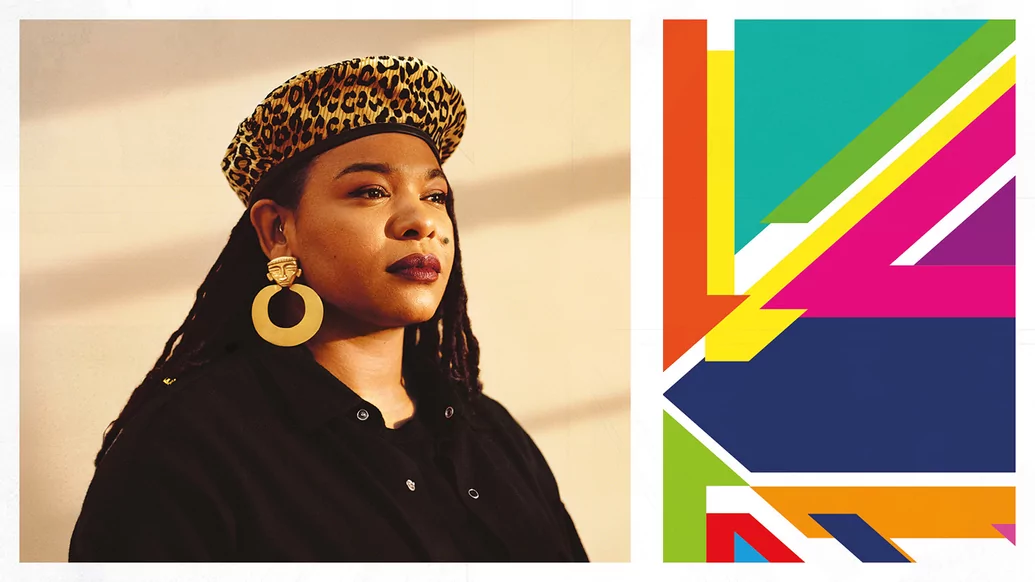

When Josey Rebelle put together her Beats In Space compilation back in the prehistoric days of 2019, she had a funny feeling. The mix took on “a kind of apocalyptic theme,” recalls the Tottenham selector. “I obviously didn’t know that a pandemic was going to happen, but the whole world felt in turmoil, and I guess internally I felt like I was in turmoil as well.”
The result of those premonitory sessions is ‘Josey In Space’, the first official mix from one of the UK’s best-loved DJs, and only the second from Tim Sweeney’s long-running radio show and label. Kicking back against her reputation for Sunday morning slow-jams, the Rinse FM DJ embarks on a voyage from North London to Chicago and back again. Framing fresh voices like Loraine James and Afrodeutsche alongside house icons like Andrés and Hieroglyphic Being, she slips between polished Midwest grooves, hi- tech jazz, strutting drum machines and blazed UK hip-hop. The mix is bookended by Black poets and rappers — the voices of Tenesha The Wordsmith, Daniel B. Summerhill and Lex Amor — and two broken dub tracks from DJ Marcelle, which Rebelle chose for their “end-of-the-world feel”.
“There’s a very strong, powerful, angry energy that runs through it,” she adds. From the pandemic to the Black Lives Matter protests, the trauma of 2020 took its toll, says Rebelle, “and I don’t think I’ve been immune to that.” But after ditching social media and taking a temporary break from Rinse, spirits are lifting. “Once again, radio has been proven to be a highlight in my week,” she says. One turbulent year after her DJ Mag cover story, Rebelle is grounding herself in the simple pleasure of mixing tunes, “a thing of beauty that I can focus on creating every week.” Chal Ravens


The two-step maelstrom of Floating Points’ ‘Bias (Mayfield Depot Mix)’ is a form of tribute to Warehouse Project and its location at Mayfield Depot in Manchester. Stemming from a performance there at the end of 2019, this live version transformed the melancholy and relatively subdued album track into a wild and intense blast of dancefloor nitro. From the drifts of braindance synth and crispy garage beats in the intro, over its 10-minute duration, the track throws in sulphuric acid lines, crowd roars and drums that intensify in energy.
In a cover feature for DJ Mag in 2019, Floating Points (real name Sam Shepherd) spoke about playing live, and trying to bring an anarchic dynamism to the sometimes-staid realm of electronic music performance.
“I want my live show to be more unhinged,” Shepherd said. “At times, for the audience to be like, ‘What the fuck is this?’ — that could be quite exciting.” The ‘Mayfield Depot Mix’ captures that sense of unbridled noise, taming it just enough to make it work in a dance context. It’s a Floating Points live show in miniature, and a corrective for anyone who thought he had moved away from dance music in his productions.
This remix also revealed more than ever the influence of IDM or braindance on Shepherd, that I was using at the time, making the most exciting music, and people losing their minds. That music’s definitely influenced me.”
‘Bias (Mayfield Depot Mix)’ is a high point of Floating Points’ discography so far, and definitely one of his deadliest dance tracks. Ben Murphy
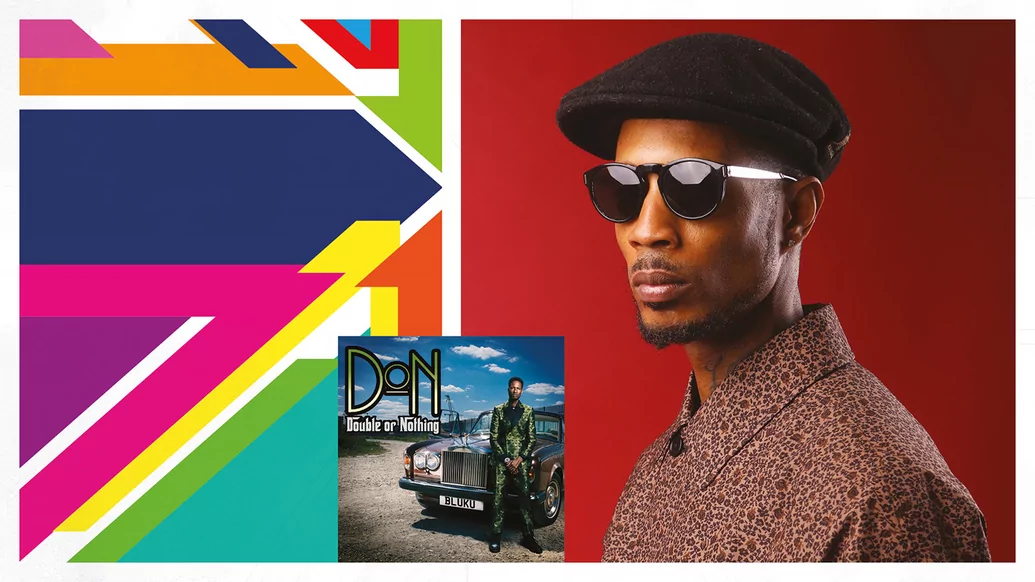

When D Double E unveiled his first album, ‘Jackuum!’, in 2018, it came as a bit of a shock. The Newham General was two decades into his career — long past the formative moments when a debut is typically released. Perhaps even more surprising was that it’s follow-up, ‘D.O.N (Double Or Nothing)’, arrived (relatively) soon after. They say the second album’s the hardest since you have your whole life to write the first and a fraction of the time to write its sequel, but the opposite seems to be true for D Double. “I think it was easier to do ‘D.O.N.’,” he says. “I liked the concentration on the first one, but it was fairly long. This one was more smooth. If things happen like they did on this one, there will be more bodies of work out, which is good because time goes too quick these days.”
At his core, D Double is a rave MC. He cut his teeth shelling over jungle and drum & bass, whittling his lyrics down to the bare essentials to become one of the few MCs who can guarantee a reload with a single syllable, a grunt even. That’s probably why he was so well-suited to just dropping singles. He never needed the longer format to say what he needed to say; three minutes was always plenty of time. Back then, he says, “Things don’t have to be so perfect. When I used to go on radio, everything was live. Any mistakes we’d done, we didn’t care. The mic could be broken and we’d still do the set. You know, it’s raw.” So to see him adapt so well to the long-player format was a glorious and welcome treat.
So what’s changed in D Double to make him give us two albums in two years? “It wasn’t even a change, man. I’d just spent so long working on it and talking about it, but the other side just wasn’t connecting.” Eventually, he grew to realise that waiting on other people to help him make it happen was never going to lead anywhere. “I didn’t get what I was supposed to get,” he says, “but this is the start of something new. I’m a lot more professional now. I don’t like the thought of having to rely on someone to be able to get something. If you do that you’re not really serious.”
Speaking to D Double, it feels as if ‘Jackuum!’ was the conclusion to something, a clearing out of sorts, before opening a new chapter with ‘D.O.N.’ “This is the start of me having that presence in the game,” he adds. “Now I’m here, it’s the best move I could have made. It wouldn’t have happened otherwise. So I wouldn’t want to change anything.” If ‘Jackuum!’ was a summary to his career up until then, ‘D.O.N.’ is D Double E in 2020 and, crucially, the purest distillation of who he is as an MC. “Everything is different now because it’s more personal to me. I’ve always had good taste in production, but I’ve never really had a platform to show people. I’d have a DJ behind me playing what he wants and I’ve got no choice, but on these projects I have a choice now.”
Though often described as “grime”, a closer inspection of ‘D.O.N.’ quickly reveals that things have moved on a bit since that term was applicable. Elements of rap, bashment, even drill are all woven together for something that’s a little trickier to pin down. “What I like is different from everyone else because I’m not following any fashion,” he says. “I’m actually just doing what I love. And I have experience in every zone I touch. It’s like on ‘Bedroom Bully’ — that’s bashment, which comes from my parents who are Jamaican. But before I was doing grime and jungle and reggae, hip-hop was my thing. It’s all part of me.” Whatever you want to call it, it could only have come from D Double E. James Keith
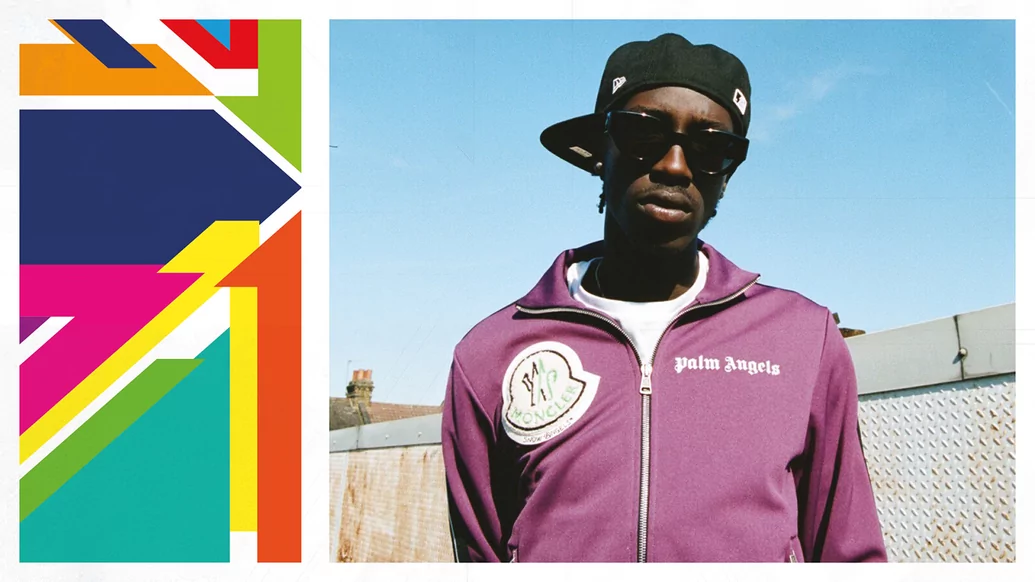

Unknown T’s place in UK drill history is canonical. His first single ‘Homerton B’ was a breakout success in 2018; an infectious, speaker-rattling slap in the face for those doubting UK drill’s capacity to cross over from the blocks where the sound originated to carnivals, clubs and festival stages. T’s deep, crystal-clear delivery and intricately structured bars made him one of UK rap’s most instantly recognisable voices.
After performing at Wireless in July 2019, Unknown T was arrested along with two other men, and charged with the murder of Steven Narvaez-Jara, who was stabbed to death in the early hours of New Year’s Day, 2018. He was denied bail and held on remand for seven months, before being cleared of all charges by a jury in February 2020.
It was while sitting on the wing, awaiting trial for a crime he didn’t commit, that T began writing the track which would eventually announce his much- anticipated return. He tells DJ Mag, “I remember my first week in prison, I started writing ‘Fresh Home’. Obviously at the time I didn’t have any instrumental for it. When I came home, my managers and the people around me helped find the right beat. That’s when I heard Hargo’s production, and it all started to make sense.”
Hargo has built his name on producing atmospheric, cinematic drill beats — from M1llionz’ dancehall-inspired ‘Y Pree’ to Loski & Mizormac’s forceful ‘On Me’. His work on ‘Fresh Home’ is amongst his best. Before Unknown T has even spat a bar the stage is perfectly set, thirty-seconds of brooding synths communicating T’s anger at a career and life unjustly interrupted. The subterranean bass then kicks, lurking ominously throughout the rest of the track as T paints the most vivid of prison portraits with trademark clarity.
Of the beat, Hargo tells DJ Mag: “With this one I was going for a cold, mysterious vibe. I used a simple reverse piano on the intro, then the piano notes and percussion comes in subtly. There’s not too many sounds, it’s more about the way I use the sounds. I think leaving space for Unknown T’s vocals was important, that creates the vibe.”
Unknown T’s bars are a masterclass in controlled fury, navigating Hargo’s steely backdrop with details of his incarceration: “Can’t believe that I’m locked with the lifers / I was on seg, not basic, segregated from all of my Niners.” His frustration is clear, as is his unshakeable self-belief: “Buss case, had to climb to the top of the ladder / I was unknown / Now I’m back on the scene as a well-known rapper.”
‘Fresh Home’ is a standout cut from T’s excellent debut mixtape ‘Rise Above Hate’. It’s the work of an artist determined to re-establish himself at the pinnacle of his scene, showing his peers that he hadn’t lost a single step while away. “I definitely feel like ‘Fresh Home’ was a reminder to everyone that I’m back and better. I wanted to just let people see my hunger, straight away from the moment I came home.”
The excited response from listeners to the track became a source of strength for Unknown T, after the isolation he experienced while in jail. For that reason, it sits amongst the key releases in his growing body of work. “No doubt, ‘Fresh Home’ is definitely a historical moment for me because being absent from the scene for so long, it made me realise how much people appreciated me and... yeah man, it was just a time that can never be forgotten really.” Robert Kazandjian
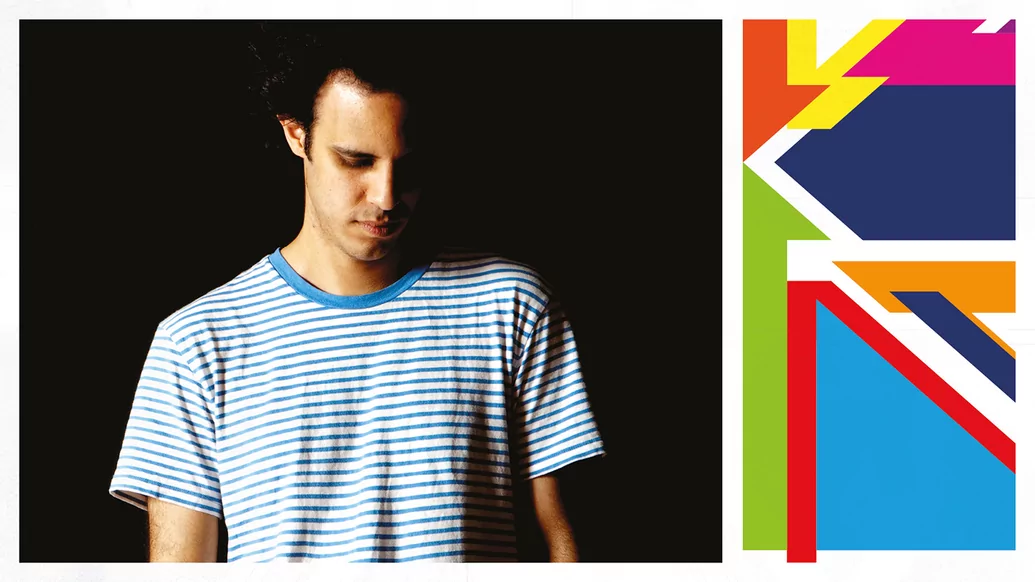

Joanna Nordahl’s video for Four Tet’s ‘Baby’ couldn’t have come in a more fitting year. The five- minute miniature masterpiece takes viewers on a thrilling rollercoaster ride around some of the world’s most beautiful landscapes, ancient architecture and bustling metropolises, all while we’ve mostly been stuck at home.
Throughout the video you soar to the heavens and are suspended in mid-air next to a gliding vulture, then swoop through a crumbling archway, dive over cliff edges and down the face of an Indonesian waterfall, and race along the surface of the ocean, snow-covered peaks and rice fields. There are also desolate deserts, jungles and forests visited along the way in this most cinematic and seamless of collages. You cannot help but be transfixed throughout the worldly journey as it empties your mind of everything but sheer wonder at the sights before you.
It was all made possible thanks to the camera-work of young Spanish drone pilot Andres Aguilera Morillas. Award-winning Swedish director Nordahl had spotted his work on Instagram just before Four Tet got in touch asking for a follow-up video to their first collaboration, ‘Teenage Birdsong’, in 2019. That video was shot at his audio/visual live shows at Alexandra Palace in London and told the tale of the night out through the eyes of two young women, Josiane Pozi and Constance Balaam. It ended with a reveal that showed them to actually be birds with huge wings coming out of their backs as they stood outside the venue, and the follow-up ends in the same way.
“At the time, Kieran and I discussed that the ending of that video should be that the young women would literally fly away from the venue, but we couldn’t make it happen,” Nordahl said earlier in the year. “So I had this idea of making a follow-up video in the back of my mind for a while, but wanted to make sure it felt as immersive as the first video. Morillas had posted a bird clip, the one that’s in the video, and it completely blew my mind. Somehow the stars had aligned, it was like ‘That’s it’, and I sent that clip to Kieran — and he loved the idea.”
All the footage was taken on solo missions by Morillas using a custom-made racing drone, specially built to be able to perform some of the spectacular manoeuvres seen in the video. He was often as far as 400ft away, and managed to get most of the shots on the first take. They were then carefully stitched together into one continuous journey that is truly transportive, thanks to the editing and VFX input of Robin Tumpum Peters. It is also, quite often, a rather vertigo-inducing trip because of the swift changes in altitude, corkscrews and upside-down fly-bys that occur throughout the video. The track itself is a delicate and subtle piece of indie-tronica with glistening melodies and a heart-aching, heavenly vocal sample, all of which suits the video’s lofty aesthetic.
Key to putting the video together were long Skype chats on what types of shots and locations would be needed, the overall style, and how to avoid the usual drone cliches and make the whole thing feel, “more like an organic and immersive flight that would gel with the song. It was a kind of reversed process at times — to find clips that would transition well, and then work our way back. Working with Kieran is amazing, he is very open-minded throughout the entire creative process and contributes great ideas.” Here’s hoping there is plenty more to come from this partnership. Kristan J Caryl
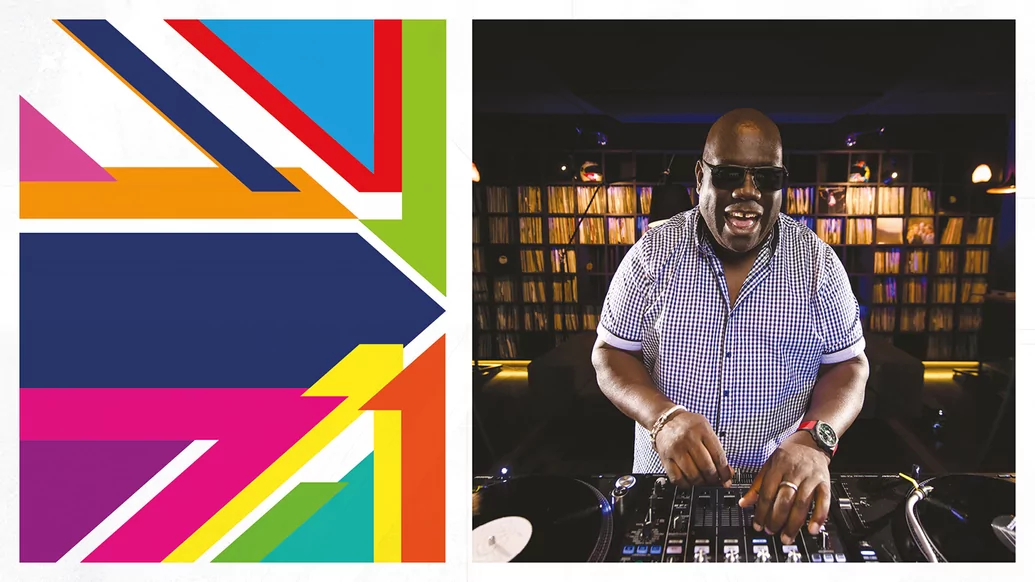

What else could evergreen scene stalwart Carl Cox possibly do when locked down in Melbourne, Australia, with only 30,000 records for company? Well, aside from tend a vegetable patch, Coxy spent every Sunday live-streaming one of his themed Cabin Fever sessions, lovingly curated from his vast vinyl collection. Show titles like Disco Diggin, Chicago Dreamin, NYC Beats, Space Terrace and House Music Divas saw Coxy digging deep into his shelves to create a special show each week for his many fans around the world.
“Each show takes a little while to prepare, about half a day, as all the records are in year order, and there are all sorts to find in those years in my collection,” Coxy tells DJ Mag. “I think my favourite ones to do are the rave shows — there is still so much love for that time of music, and to bring those memories back for ravers that were there brings it all back for me also.” All sets were played off the original vinyl that Carl was playing at the time, including F.A.C.T 25 when he recreated his groundbreaking mix-comp for React live, exactly a quarter of a century on.
Carl says he loves the interaction he gets online during the shows, and how people find other music-lovers in the chat. Did the Cabin Fever shows make up for not being able to play out live in 2020? “I think so,” he replies. “So far, I have performed over 80 shows, plus re-streams. I never ever thought that one day in my life I would be playing in this way, but, for now, I’m really enjoying reaching out to so many fans of my sets and the music, to be able to show everyone my history of music by playing vinyl sets every week. It’s what got me here in the first place.” Carl Loben
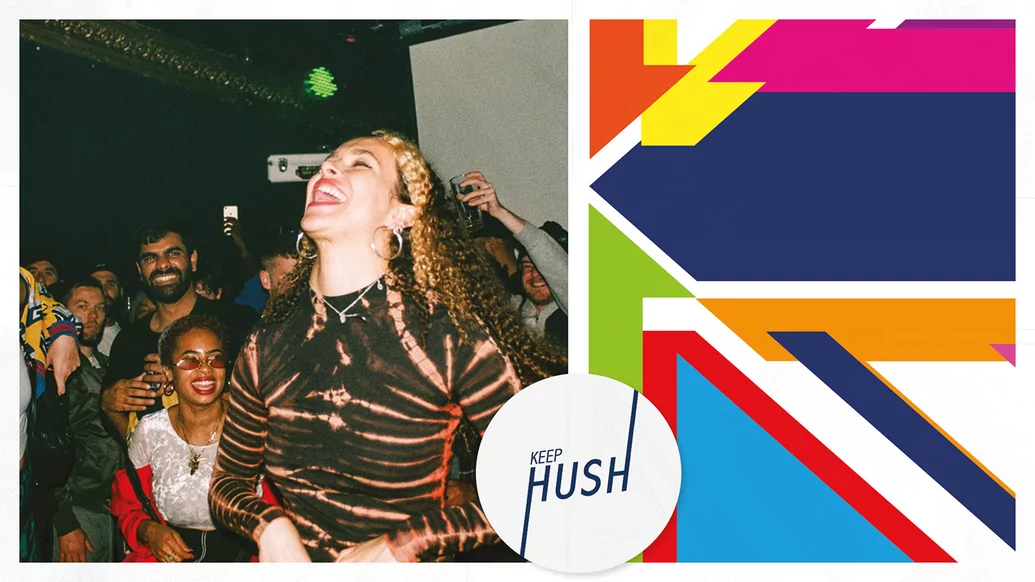

“We want to be a force for good in the music industry, especially with artists and making sure they’re able to survive when there’s no live touring,” say Keep Hush founders, Fred and Freddy. The London-based collective has come a long way in the last few years: from throwing parties in a basement in Soho to curating some of the rowdiest events Peckham bar Rye Wax has ever seen to taking over The Alibi, a Dalston- based venue, for a month. Keep Hush were garnering the kind-of momentum many dream of when starting a venture in the music industry. “That was a huge project for us, having our own venue for a month,” they say. “It was a culmination. Keep Hush is a project that we’ve been riding for a few years, like a rollercoaster. But we hadn’t really nailed down what our role was in music.”
When the pandemic struck, Fred and Freddy took the opportunity to look at reorganising Keep Hush. They realised that to be the best version they could be, they wanted artists at the forefront of how they operate. “We just felt the streaming space became extremely saturated super-suddenly,” they explain. “That’s what inspired us to start Merch Service, a made to order merchandise productions service specifically aimed at underground artists.” Having played host to artists such as American footwork DJ Kush Jones, as well as British acts FAUZIA and SHERELLE, alongside many others, Keep Hush had gained prominence as a party event. But now they look forward with an intention they never possessed previously. “The pandemic has made us realise where our place is in music,” the duo explain. “And it’s to help artists make money. We solidified what our role is in music, and it’s given us a clear sense of direction. We now don’t feel stuck. We can do anything.” Dhruva Balram
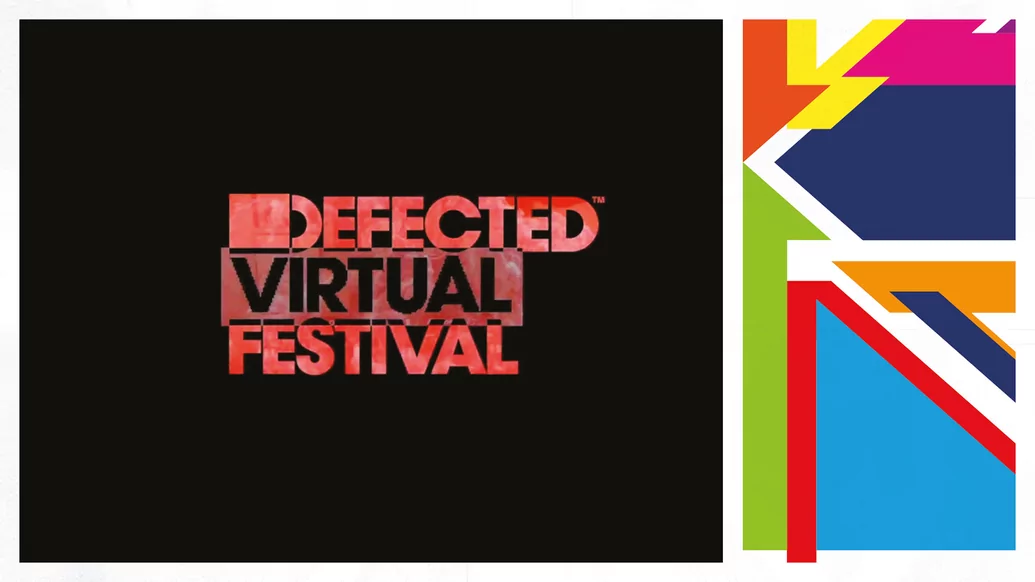

Defected are the recipients of our Best Virtual Festival award, for providing a 4/4 ray of multi-coloured, party- flavoured sunshine into a tough year; for pressing on with their vision of the uniting power of house music, despite there being no dancefloors. What a contrast to 2019, a year in which Defected celebrated two decades in the business, had a non- stop series of huge releases and sold-out events, as well as picking up the Best Of British Best Label award and a Soldier Of The Scene award for brand boss Simon Dunmore.
Yet Defected have managed to turn 2020 into a win, successfully executing a 12-hour virtual clubbing experience within three days of going into lockdown, and running a series of superb virtual festivals through the year, featuring established names like The Martinez Brothers, Louie Vega and Sam Divine, as well as relative newcomers like New York’s Natasha Diggs, DJ Koco from Japan, Dom Dolla from Australia, Brazil’s DJ Aline and the Sondela crew.
Label chief Simon Dunmore takes up the story: “The initial few days of lockdown were an incredibly difficult moment for all. We know how important music and clubbing is to people all over the world, so we discussed how we could connect with our community. Everybody pulled together, the staff, the people involved with production, the DJs, and it was amazing to bring some positivity into people’s lives.”
That positivity is set to continue into 2021, with Dunmore unequivocal about the return of clubbing: “We are not subscribing to a ‘new normal’ or the concept of people paying to watch
Defected DJs livestream in the future. We believe 100% in the live experience, that it needs to be real: in clubs, at festivals, where you connect with likeminded people listening to your favourite DJs, sharing your experiences. True escapism... we need to put 2020 well and truly behind us.” Here’s to that. Harold Heath
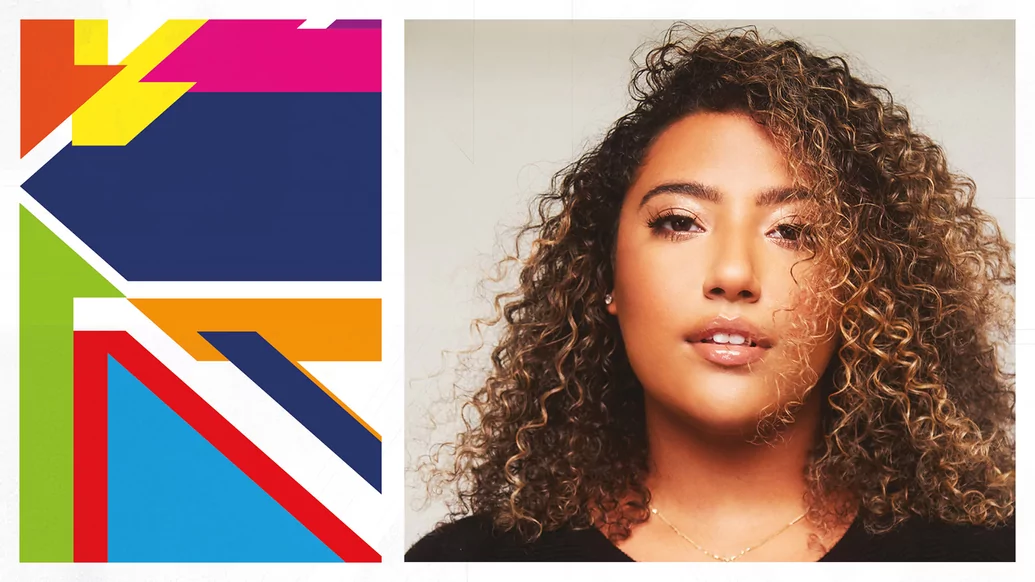

Tiffany Calver is nearly two years deep into her tenure as host of the 1Xtra Rap Show. 2020 has thrown up obvious challenges, but paradoxically it’s allowed her to shape the show into something that feels more thoughtful than its previous incarnations, while continuing to showcase rap’s most exciting voices. She tells DJ Mag, “I’m almost like the anti-character, in a sense. I don’t even have a DJ name. I’m just a person that plays music for two hours. And I’m just myself; I’m sarcastic. I’m weird. I’m super-nerdy.”
The context of a global pandemic allowed for a more personal dialogue between host and listener. “There was more of an intimate vibe with the show because everything was about using it to provide some sort of happiness for people listening, but it was also providing happiness for myself because all of my life went into the show. I had nothing else.”
Radio’s significance was arguably re-established in 2020. “Radio is so important because of the connection between the specialist or host and the listener. I’m providing two hours of music I like, sharing it with people who I think will like it too. We’re texting back and forth, it’s just such a wholesome thing. It’s so personal and intimate to connect with the listener that way, just by speaking to them like that. The fact that radio is some people’s lifeline really shone through for me.”
Tiffany also used her platform as an expression of solidarity with the Black Lives Matter movement, in ways in which her predecessors might’ve shied away from. “It’s about balancing the fun elements with reality and using my voice in that sense as well,” she tells DJ Mag. “The show is two hours of me playing music by Black men, Black women. There are listeners of all races, from all parts of the UK and around the world that listen to my show. I wanted them to listen to the music, but also to understand that if you enjoy and celebrate Black art, you have to also protect and respect Black lives. That was a very special show. It was probably my favourite show I’ve done.” Robert Kazandjian
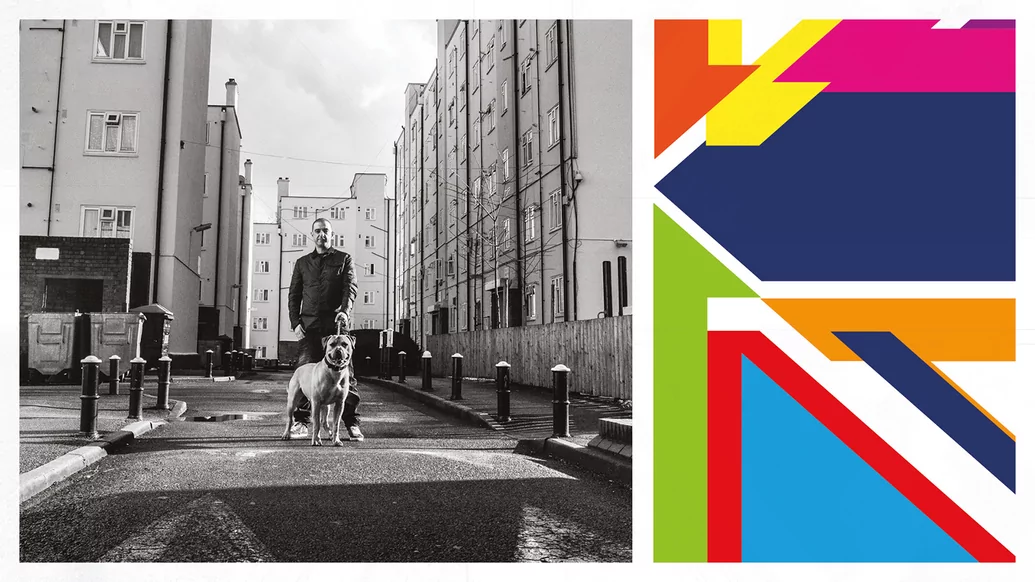

It feels like the Best of British Soldier of the Scene award was specially designed for DJ Hype. This DJ, producer and label owner’s career reads like a history of the last 40 years in UK dance music. From his musical beginnings with a one-deck reggae sound, Sticksman Hi Fi, in Hackney, through working on some of the earliest classics of hardcore, being an original jungle pioneer and making garage classics, Hype has pretty much done it all — even if some people don’t realise how deep his roots go.
“I listen and read about stuff that is basically not correct, but I find that’s in every kind of subject matter these days, not just my history,” he says. “I really do believe that my story is a unique journey that next year will have spanned 40 years musically. My cultural journey is unique too, and I am very proud of my legacy.”
At the age of 13, DJ Hype and his friends Smiley (of hardcore/jungle pioneers Shut Up And Dance) and MC Daddy Earl started building a soundsystem. “We were living in what I call ‘original Hackney’ when it was raw, violent and crazy, not the gentrified Hackney of today,” Hype says. “By 15 years old, we had developed into a soundsystem that played not only reggae and dub but soul, rare groove and hip-hop, plus Daddy Earl would reggae MC, Smiley and PJ would rap, and I would cut and scratch my way through all these different music styles all night. We even had our own little drum machine. It all sounds like nothing now, but back then it was quite a new thing to do it all at the same time, and do it all well. I would ride round on a BMX looking for empty-looking houses to break into and hold our illegal parties.”
From there, Hype refined his skills on the decks, becoming a formidable scratch DJ. He got so good that he won the London Mixing Championship in 1989. Playing on pirates like Fantasy FM, he started making music too, helping to produce the classic hardcore tunes ‘The Exorcist’ and ‘The Bee’ with The Scientist. He began playing massive raves like Dreamscape in the early ’90s, and as jungle came to the fore, he released ruffneck tracks such as ‘The Trooper’ and ‘Shot In The Dark’. In 1994, his Ganja Records label became a vital outlet for heavy jungle cuts, while his next imprint, True Playaz, started with Pascal and DJ Zinc, brought a raw hip-hop energy to jungle via gangsta rap samples, synth-funk snippets and wavy sub-bass, as well as more classic ragga-influenced sounds.
The label became one of the most visible d&b brands in the late ’90s onwards, running rammed club-nights in The End and later, Fabric. With a string of early 2000s gems as his Naughty alias, and a remix of Étienne de Crécy’s ‘Scratched’, Hype proved himself adept at making garage too, and as True Playaz morphed into Playaz, Hype brought through new school d&b producers like Hazard. His radio show on Kiss ran for 24 years, and his regular Friday event at Fabric was the longest-running label night in the club’s history.
For Hype, 2020 was an opportunity to take stock and recharge his batteries. “It’s been a strange up and down year for me,” he says. “The lockdown was weird at first, but I have had time now to kinda reset myself, after being in that fast lane of the music game without taking any real time out for the last 39 years. Being forced to stop was a blessing in disguise. I gave up smoking ganja, and that has changed me for the better.”
Lately, he’s been active posting music clips and sessions from his Playaz Dungeon basement studio on Instagram, delving into his deep history and musical versatility. “The Playaz Dungeon is a mix of today’s digital era and the older analogue era, with music spanning 40 years and longer scattered about the place,” Hype says. “It’s meant to push and raise the standard of producers, DJs and MCs, including myself, while enjoying the vibe of actually hanging out and trying out styles and flavours, with artists being taken out of their comfort zones and challenged musically.”
In 2021, there are plans to kick his label into overdrive. “Playaz has pretty much chugged along without any planning for the last few years,” Hype says, “but now I stopped smoking and had time to reset, I think 2021 will see me being more proactive in the running of the label. There are a few releases already lined up for next year that sound great, and I have laid down some ground rules to make sure I keep to a certain standard regardless of artist or styles. I want to keep away from generic sounds and stay as original as possible.”
All things being well, this year, he plans to “do my usual upfront drum & bass sets and Playaz nights and festivals, plus I might do a little tour where I celebrate my 40 years in the game and do a much longer DJ set covering those 40 years of music, where I fuse the whole lot into one great sound”.
Hype’s been the recipient of multiple awards over the years, including best DJ at the Drum & Bass Awards, and best label. He’s happy to win the public vote for Soldier Of The Scene, and reckons he was chosen for staying true to the art, after his many years in the industry.
“It’s lovely to get this award and get recognised by your magazine,” he says. “I think people voted for me because I have always pretty much been known as a soldier of the scene anyway. I work much better when I please myself first rather than worry about what other people think in this industry, and that’s what got me big in the first place. After all, I ain’t a game player... I am a True Playa!” Ben Murphy
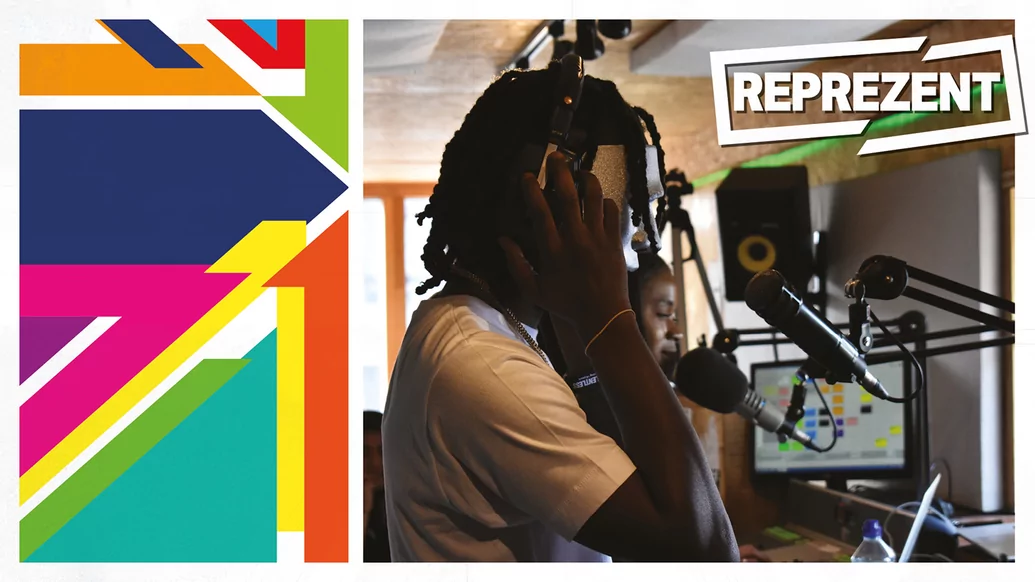

With live music on pause, the value of good quality online radio has never been more obvious than it has in 2020. What’s more, in a year in which the BLM movement and continued discussion of the role marginalised communities and minorities must play in our scene was a major focus, the importance of stations with a real social and political conscience has also been thrown into sharp relief. Since 2011, no station has been as dedicated to all these causes and more than Reprezent Radio.
The station’s origins are in a one-month Restricted Service Licence which allowed Reprezent to launch with a promise to focus on youth issues including gun and knife crime. Their first broadcast was a successful one that enabled them to apply for, and ultimately be granted, a community radio licence which has allowed it to continue broadcasting live across London on 107.3FM, as well as on DAB radio.
The station’s simple but serious slogan is The Sound Of Young London, and to that end it is focused on giving young people in the capital access to a platform where they can discuss the issues that matter to them, where their views are fairly represented and negative stereotypes are dispelled, all next to a selection of music that is underground, exciting and relevant to them.
From its base in three converted shipping containers in the Pop Brixton community space, the station covers grime, hip-hop and broader dance styles. What is played gets decided entirely by a panel of young presenters and volunteers, and there are over 100 different hosts — from those who are well established and legendary, to those who are exciting up and comers. As well as hosting on the station, plenty of the DJs and presenters all work in the music industry, whether making their own music or running labels and club-nights, so the sounds you’ll hear at any given time are always right from the vanguard, no matter the genre.
Past presenters include global superstars such as Stormzy as well as pivotal pioneers such as Novelist, Lady Leshurr and Jamz Supernova amongst many more, while guests such as Goldie and Warpaint have also hosted special collaborative shows. The station also runs their own Reprezent Mental Health schools programs, with hosts helping to educate thousands of young local children about their own mental health. There is also a training scheme that teaches young hopefuls all about the ins and outs of radio, with graduates in the past having moved on to big roles at the likes of Kiss FM.
Station Manager Adrian says: “Working with young people and young creatives is a joy and privilege, and is what keeps me here. Everyone is still so excited about music, and all the major decisions remain in their hands for that reason. So many young presenters have broadened their skills this year because they have had to learn how to play from home. We were live from 26 hours into the first weeks of lockdown. We really saw this year as an opportunity to see what we could do and what new shows we could bring in.”
As it heads into its impressive 10th year, Reprezent Radio remains a vital resource that continues to lead from the front. Kristan J Caryl
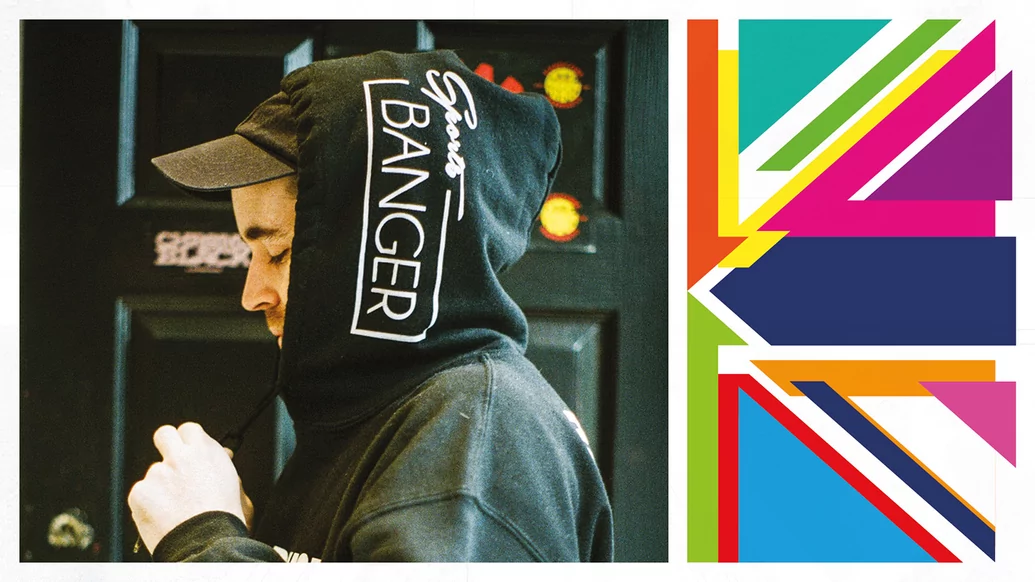

While many of us have been happy just to get through the shittiest of years, UK bootleg king Jonny Banger has never stopped grafting. Through a series of charity and community-minded projects the Londoner has proven himself a true maverick, a socially conscious pioneer and enfant terrible who is growing as increasingly vital to British culture as Damien Hirst or Alexander McQueen. He’s not challenging the establishment with haute couture or high-concept art, though, but rather through tireless street-level grind that really makes a difference.
The master bootlegger, born Jon Wright, first made his mark in 2013 when he made a FREE TULISA t-shirt for Skream and Jordan Rizzle Kicks to wear during their set in exchange for entry to Wireless Festival. It immediately went viral, and a legend was born. A website and the Sports Banger brand quickly followed, as have full capsules, a suit made from golf sale placards, limited t-shirt runs juxtaposing Nike and NHS logos, and of course the now iconic Reebok Classic ice soles with fivers pressed in, amongst much more.
His mission is to make do with whatever is available, and he’s often worked closely with Tottenham Textiles workshop and its young apprentices to make his pieces a reality. The whole brand is informed by rave culture, which is an aesthetic that has long been pillaged by plenty of big name brands, but Jonny has lived it and breathed it his whole life. He’s the real deal, a born and bred Tottenham-based raver who DJs, MCs, has built soundsystems, and this year started the Heras record label, named after the company that makes the perimeter protection fences you’ve seen at festivals. Jonny makes clothes that are designed for you to wear to the rave.
Frankly, if you don’t get them covered in mud or drenched in sweat you’re wearing them wrong and would likely receive his scorn. Everything he does sticks two fingers up to the system — you may have seen the giant FUCK BORIS billboards round London — or pays homage to acid house culture with comical imagery. His collaboration with Slazenger and choice of Sports Direct as a high street vendor was all about keeping his clothing ridiculously affordable and accessible to all. For his efforts he’s had five warnings from the UK government, and two online shops and three PayPal accounts shut down. But he will not stop.
He’s an anarchist of the people, for the people, driven by real compassion and empathy, having lost his mum — a mental health nurse — at a young age. His father, too, worked for the London Federation Of Boys’ Clubs helping inner-city youths through sport, all of which motivates Jonny’s own social consciousness. That played out this year as soon as the pandemic hit when Jonny, in just an hour one Friday afternoon, made £37,000 from online sales, with no marketing, all of which went on delivering fresh juices and healthy food to a handful of NHS hospitals. He continued the project for weeks. He’s also recently had his first art exhibition at The Foundling Museum after an invite from Jeremy Deller (with approving visitors including king satirist Chris Morris), and has self-published his first book, The Covid Letters, both of which showcase 300 pieces of artwork by children under 16 who he encouraged to deface and graffiti the letters Boris Johnson sent out encouraging people to stay at home during the pandemic. All entrants got a bootlegged Blue Peter badge and certificate making them an honorary pirate of the ‘Banger Fleet’.
Jonny remains an unstoppable machine who will always knock back any offers that might take his work out of reach of real people. In a world that constantly strives for but often falls sort of genuinely authentic, there is no one more legit than Jonny Banger. Kristan J Caryl
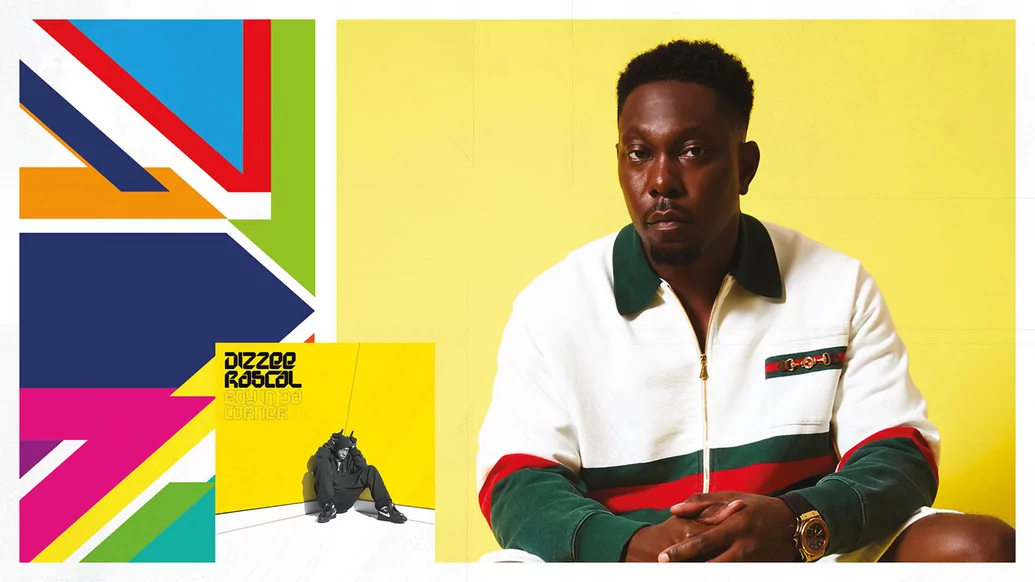

“Some of the themes I was dealing with on ‘Boy In Da Corner’ a lot of it was just rage, or being cheeky, saying some outrageous shit or social commentary,” says Dizzee Rascal, remembering the lyrical content of his ground-breaking debut album. “I was just being a kid, talking about how rough I thought I was.”
Released when he was just 18 years old, ‘Boy In Da Corner’, the winner of our new Best Of British Game Changer award, made an enormous impact on its release in 2003. Arguably the first proper grime album, it helped cement the genre at a time when it was just becoming a new form after mutating from the MC-driven side of two-step garage. Its production, from Dizzee Rascal himself, showed this sound could be every bit as futuristic and fresh as the styles it had evolved from. Perhaps most significantly of all, it showed that a UK MC could have a distinctive voice and charismatic flow that was the equal of American rappers. Defiantly underground and DIY in nature, the record was nevertheless both a critical and commercial success, and won the Mercury Prize award in its year of release. It yielded big hit singles with ‘I Luv U’, ‘Fix Up, Look Sharp’ and ‘Jus’ A Rascal’, and ushered in the first big wave of popularity for grime, with albums from Kano, Wiley and Lethal Bizzle following quickly afterwards.
Dizzee Rascal grew up in Bow, East London, listening to hip-hop and pirate radio stations like Rinse. He got his own decks and started to mix jungle records, and got inspired by the MC side of the scene. He looked up to DJ Target, who lived on the next-door estate and who would lend him records, and began to MC with a few crews. At the same time, he was making his own beats on the Playstation with the ‘Music 2000’ program (famously used by So Solid Crew for some of their first album).
“Then in school, I got introduced to Cubase,” he says, “and I started using this other little studio in Poplar. That’s where I made my first proper beat.” Dizzee Rascal had made a few appearances as an MC on East London pirates by this time, and one day, Wiley invited him to rap on a new tune his crew Roll Deep were making in a studio in Bermondsey.
“He called me in to do this hook on a song that became ‘Bounce’,” Dizzee says. “Even though I was never officially a member of Roll Deep, that’s how I ended up in there. That was the beginning of ‘Boy In Da Corner’, I kept going to that studio and making more tunes.”
After studying at Redbridge College for a while, he realised he didn’t need any further tuition, as his self-released instrumental tunes, like ‘Go’, were already doing the rounds on the pirates. “One day, I was on the computer making a beat, and I said to myself, ‘Why am I doing this, why am I here?’ I was already known. I could be doing this beat in a proper studio and put it out on white label. I literally left and never came back.”
He released the first big single from the album a few months later. ‘I Luv U’ was a scattershot of harsh drum machine beats, stomping overdriven kicks, icy synths and monstrous warping Reese bass borrowed from tech-step jungle. Mixed with the acerbic raps (“Dizzee Rascal come down like snow / and freezing cold flows like Moscow”), and call-and-response male and female chorus, the tune was startlingly original. Dizzee remembers tapping out the percussion in real time, “making the beat, and having this dirty drum sound and bass. It was all spread across the keyboard”.
‘I Luv U’ was partly inspired by the US hip-hop of Three 6 Mafia, and especially by the vocals and production of Jay Z and Memphis Bleek tune ‘Is That Your Chick?’, which featured Missy Elliott on its chorus. A fan of Timbaland’s production in general, Dizzee recalls that when he heard it, he was impressed that such a big track could be so futuristic-sounding. “Timbaland is one of my favourite producers, and I wasn’t a massive Jay Z fan before that, but when that came out, I thought, ‘This is sick’. Most things, when they get to mainstream level, they’re not that brave, but when that came out, the sound of it, it was like, ‘What is this? This is fucked’. It sounded different, especially the structure, with the call-and-response between the boy and the girl. I actually wrote the lyrics while listening to that song.”
The tune circulated first on dubplate. Dizzee remembers that when he gave it to Slimzee, the DJ liked it, but thought it sounded really unusual. “He was like, ‘Rah, this is mad’, and everyone who was hearing it was thinking it was mad, too. A lot of people didn’t like it at first, and then grew to like it, ’cause it was different. To me it sounded sick, and that’s the kind of shit I wanted to make. I didn’t know what to compare it to.”
Making the album, Dizzee continued in this unorthodox vein. The opener ‘Sittin’ Here’ and the album closer ‘Do It!’ mixed frosty, weird electronics with street reportage, the latter encouraging the listener to stay strong through adverse times.
“It wasn’t all macho, I showed a lot of vulnerability, and I think that’s what carried it as well,” Dizzee says. “‘Sittin’ Here’ and ‘Do It!’ is stuff that got people through life on a council estate. That’s what separated me from being the [US rap collective] Dipset thing, ’cause that’s not what I was.”
Across the record, Dizzee made a pointof using British vernacular and slang to distinguish himself from Stateside rappers, flinging in phrases like “You haven’t the foggiest” and “Flushing MCs down the loo” to amusing effect. The references helped to make the album a snapshot of a moment in UK history. “‘Yeah, I’m a problem for Anthony Blair’,” says Dizzee, recalling an allusion to the then-prime minister on the album. “At the time, New Labour was the big thing. It was just a cultural reference. But then I said it again, ‘Queen Elizabeth don’t know me, so how can she control me?’”
The sample-based ‘Fix Up, Look Sharp’ came about after Nick Cage (whose studio Dizzee used in Bermondsey) introduced the rapper to the old rock tune ‘The Big Beat’ by Billy Squier, which had become a rap staple thanks to its chunky drum break.
“I respected old school hip-hop, and I thought this was a chance to make an old school hip-hop record,” he told Okayplayer. “‘Fix Up, Look Sharp’ was something I heard one of my friends say on the estate one day. He just said it taking the piss. That’s how he said it, ‘Fix up look shaaaarp!’ And I remember laughing my head off.”
Tunes like ‘Wot U On?’, by contrast, would help map the sound of grime to come, its dark minimalism and vivid synths still an influence on various dance genres now, especially the futuristic club sound.
“That was my favourite one, as far as the beat goes,” he told Red Bull Music Academy. “I didn’t know what the fuck I was making, I thought it was kind of drum & bass-y, to an extent. But it didn’t sound like anything. It was the other track where I got to use that same kick as ‘I Luv U’. I loved that kick. That was like the Eski sound. A lot of people don’t know that I used that before Wiley; I was doing that first. Their sound changed.”
Since ‘Boy In Da Corner’ made such a big splash, Dizzee has gone on to have five Top 10 hits, and made six more acclaimed albums, including 2020’s ‘E3 AF’, which found him back in classic grime territory while incorporating a touch of drill production. But ‘Boy In Da Corner’ remains his most defining record to date, and is a milestone for UK dance music and rap. Ben Murphy
